Kid Rock before the fame: The definitive Detroit oral history
"It felt like being part of this secret in Detroit that soon the whole world was going to know about." — Tommy Valentino
When Kid Rock kicks off a sold-out, 10-show stand Friday at DTE Energy Music Theatre, he'll roll out a set of familiar hits and stage moves — the material he's made famous since his national breakout in 1998.
But as most Detroit fans know, there's far more to the Kid Rock saga than that.
By the time his 10-show run wraps up, he'll have played to 150,000 hometown fans. Why is Kid Rock so big in Detroit?
Because Kid Rock got a head start in Detroit: a decade of building his name, grooming his sound and reinventing his persona from scrappy hip-hop street kid to swaggering rock-rap showman.
Need a break? Play the USA TODAY Daily Crossword Puzzle.
This year brought a new career chapter: Rock's album, "First Kiss," marked his departure from Atlantic Records, the company that launched him into the national spotlight with 1998's 10-million-selling "Devil Without a Cause."
Getting to that point wasn't without struggle. The teenage Kid Rock had been dropped by his first label, and he returned to Detroit in the early '90s disillusioned but determined to make it on his own terms — driven not by money but by an intense thirst for fame.
Here's a look back at those early Detroit years, 1990 to '98, when a young Bob Ritchie hustled hard to get noticed — and molded himself into the Kid Rock the rest of the world knows today.
Romeo-born Ritchie was a little-known 17-year-old rapper and DJ when he was signed by the New York hip-hop label Jive Records, which issued his 1990 debut album, "Grits Sandwiches for Breakfast." He'd spent his teen years playing east side house parties and making connections on Detroit's fledgling hip-hop scene, and "Grits" was his Beastie Boys-inspired record of bawdy, boasting rap.
Jive booked Kid Rock on that year's Straight from the Underground package tour with Too Short and others — a shot at a national audience.
But his Jive stint was brief, and the young rapper was soon back in Detroit plotting his next move. It would be the key stage in Kid Rock's evolution, as his hair grew longer, his music grew louder and his live show grew bigger.
MIKE E. CLARK (producer-mixer): I cut his demos as a kid before he got signed in 1989. I was working with mostly young black teenagers then. I didn't know he was white — we caught each other off-guard when he came in. I thought, "Yeah, sure. A white guy is going to rap." But he shut me up. He had his turntable, had his beats, his stuff already written. He had his shit together and blew me away.
He was very confident, had the high-top fade, very sharp. You could tell right away he wasn't bullshitting. He had a shitty little Casio keyboard, and knew exactly how he was going to do it.
He took those demos and got a deal with Jive.
JOE NIEPORTE (manager, the Ritz, State Theatre): I ran the original Ritz in Roseville, an 1,800-seat venue. Very large. He wanted a gig. He came in pretty cocky: "I'm going to fill this place." Every band I talk to says that. But he had a lot of wits about him. Just a strong, cool personality.
We did the gig and he put 1,200 people in there. I was blown away.
He had a great street team, a lot of little kids helping him back then.
JERRY (VILE) PETERSON (publisher, Orbit magazine): He had this giant Mt. Clemens posse. The high school friends. You'd meet so many of them at once.
NIEPORTE: Bob was just straight-up rap then. He didn't have a band. You've heard that early stuff — a lot of profanity, real edgy, hard-core. I wasn't a big rap fan, but I liked his stuff. But I remember telling him, "Dude, if you're going to make it to the next level, you've got to clean it up."
MIKE HIMES (owner, Record Time shop): When "Grits Sandwiches" came out, he came in for an in-store (performance) at 10 and Gratiot. He had the tall hair, spinning like he would at the bars in Mt. Clemens. We had a decent turnout. Toward the end, this blond-haired skinny kid kept yelling out — "I'll battle you! I'll battle you!" Just persistently getting in Kid Rock's face. I came up to him: "Dude, this is his day, his event. Maybe one day you'll have your day, but leave the guy alone." He followed him out to the parking lot still wanting to battle.
That was Eminem. He gave him a couple of his tapes: "Check me out." At least Kid Rock was cordial about it.
CLARK: (In 1990) Vanilla Ice came out and stunk things up. So Jive decided they didn't want a white rapper anymore. They couldn't see the future, and they dropped Kid Rock, which was devastating to him. He got a deal with an independent label, Continuum, and said, "(Screw) it, Clark. Let's do this record." We worked on "Polyfuze Method" at the (Ferndale studio) Tempermill in '92.
With Jive, he tried to be the rap guy, keeping it all hip-hop. But — and this is just my opinion — he got disillusioned by being dropped. So he was like, "(Screw) it, I'm going to do my own thing."
TOMMY VALENTINO (music attorney): His attitude now was, "I'm not going to count on any record company to make me a star."
PETERSON: The whole Vanilla Ice comparison, he dreaded so much. It was a source of shame in that whole thing. In his first interview (with Orbit in 1990), he was saying he's not a Vanilla Ice, that he was trying to be the real deal. And he always told me it was his parents' music that influenced him. Definitely Seger, which was like old-people music at that time.
"The Polyfuze Method," a heavy, frenetic record, was released in summer 1993.
CLARK: We were adding rock guitars, sampling Pink Floyd, any crazy stuff. At one point we had a flute player come in. We just didn't care.
He liked all kinds of music. When he goes to make music, he does what he thinks sounds good. If that was mixing a flute or heavy metal guitar on top of 808 drums — as long as it sounded good, that's what he did.
NIEPORTE: "Polyfuze Method" had a great rap presence, but also brought a strong rock feel. When I heard it, I thought, wow, this guy is on to something. And he toned it down (lyrically). Not a lot. But he did tone it down.
HIMES: It was his crossroads record: the hip-hop influence, but starting to lean toward rock.
DAVID LEE (friend): The fact that he's now associated with so many genres of music isn't a surprise. Even though we looked at him as a hip-hop guy after the Jive thing, you could start to see those other elements — the rock 'n' roll, the country.
BRIAN PASTORIA (drummer, rock band DC Drive): I remember Bob coming to a bunch of our shows at the Ritz in the early '90s. Our singer, Joey Bowen, liked the Beastie Boys, so when we did "You Need Love," we'd have this big breakdown with Joey rapping.
Bob knew he couldn't keep going down that Vanilla Ice path. It got him attention at first, but he realized that's not where he wanted to be. He was tired of the rap thing with programmed tracks. He wanted to do the Beastie Boys thing — only in a bigger, more rock kind of way.
Kid Rock was fighting for a name on the scrappy Detroit hip-hop scene of the '90s, amid acts such as Insane Clown Posse, Esham and Eminem.
In summer 1993, Rock's ex-girlfriend gave birth to his son, Robert Ritchie Jr., who became known to everyone as Junior. Later that year, Rock found his way to White Room Studios in downtown Detroit, run by brothers Michael and Andrew Nehra — rock musicians then forming the rock-soul band Robert Bradley's Blackwater Surprise.
Rock cut tracks for his second and final Continuum release, the "Fire It Up" EP, which featured the rock-heavy "I Am the Bullgod" and a new country twist: a gritty cover of Hank Williams Jr.'s "Country Boy Can Survive."
Rock soon launched his own label, Top Dog Records, and kept himself in local record racks with his "Bootleg" cassette series featuring new tracks and reworked material.
BOB EBELING (drummer, engineer): We were living together (in Sterling Heights) at possibly his lowest point. He had lived with (girlfriend) Kelly. There were three kids, he thought two of them were his, and then he found out that one of them wasn't. He was really emotionally torn up, going through that deep heartbreak stuff.
They split up and that's when I moved in the apartment. He was also kind of disenfranchised from his dad at that point. There wasn't a lot of financial support coming from the family. So he was probably most alone at that point — being heartbroken and away from his family and being on a smaller label like Continuum, not getting as much financial support.
But the one thing that was still there: He was motivated by fame. I've worked with five or six pretty big stars — Eminem, Rufus Wainwright, Phish — and there's a certain archetype personality that just needs to be famous. Fame is quite an ugly thing to me, and most people would be scared to death of it, but he was driven by it. He talked about it in ways that didn't even make sense to me. He relished it.
He loved when we went somewhere to eat and somebody recognized him. He had this whole reward system in his head that didn't exist in other people's heads: When people recognize you and want a piece of you, it was the equivalent of being wealthy. He just ate it up.
AL SUTTON (White Room co-founder, engineer): We were the grunge, hard-rock studio. Bands came in with amplifiers, guitars and drums. And in walks this guy with a sampler and MPC60.
He started hanging out in the studio. We needed somebody with his skills in our camp. He could program and loop, and we needed to be a little more current in that way. We had a B-room that he basically took over, coming in midday and staying 'til 5 in the morning.
MICHAEL NEHRA (White Room owner): Andy (Nehra) and I were a conduit for his creativity by giving him a studio to use. We worked with him in coproduction, engineering, some writing stuff. Bob was really fun to work with back then. He was creative, and we were all really good friends. We gave him the keys to the studio after the Continuum thing, and he created a lot of cool stuff there. There was this energy between the two rooms, creating music.
SUTTON: He was cleaning all the time. He's a real neat freak, had to have his place really tidy. He'd vacuum the B-room and then go to work.
We thought he was good energy to have around. If we needed something programmed, he'd be here; if he needed a guitar part or drums, we could set it up. It became this symbiotic relationship.
JIMMIE BONES (keyboardist): He was this guy that was always around, his Dickies and stocking cap on. He started asking me to come in: "Hey, I'm doing a track; can you throw on some piano?"
NEHRA: He was learning from my brother and I. We were there playing the guitar and bass on "Bullgod." Bob wrote the song, but my brother and I made it sound like "Bullgod." Bob could play some guitar, but my brother and I were rock 'n' rollers who played the groove thing with Robert Bradley, and that energy certainly rubbed off. When he first came into the studio he didn't really sound like that.
He was starting to get more of a rock edge, and that's what we tapped into — that rock 'n' roll spirit, that Detroit soul thing.
CLARK: The first time I ever heard him sing, East Detroit had recently changed its name to Eastpointe. So Bob changed the lyrics to Billy Joel's "It's Still Rock and Roll to Me" to record a cover version called "It's Still East Detroit to Me." He started singing, and I was like, "Dude, you sound amazing!" He was just (messing) around, but he sounded really good. I could hear the tone. He could hit the notes.
When "Only God Knows Why" became a big hit later on (in 1999), he looked at me and said, "You know, you were the first (person) who told me I could sing."
PETERSON: We'd have these Orbit karaoke nights, and that's when I learned he could actually sing. He'd do "Stayin' Alive," all the parts. Plus he brought the mushrooms, which made the karaoke even more fun.
HIMES: He was hustling, coming in on a regular basis to drop off his (tapes and records) on consignment. He had flyers for his shows, tickets for the DJ things he was doing. He already had a vision. He was promoting himself, trying to meet the right people. We'd sit in the store and he'd ask me questions at length — where to get records pressed, that kind of thing. He would pick your brain, just thirsty for information.
SUTTON: He was killing it on the little tapes he was releasing, selling a ton of his own cassettes out of the record stores and his car. And he was making good money playing gigs. But Bob wasn't getting a lot of credit from the hipsters and rock scene in Detroit. It was, "Oh, he's a white rapper; no need to take him seriously."
MARK BASS (producer, Eminem): He was innovative, always a few steps ahead of what hip-hop was doing. But hip-hop didn't want to hear it, because he was this white guy with the long rock hair.
SCOTT LEGATO (photographer): I was a DJ, spinning rap at the Struttin' Club on Gratiot. He showed up with his records. I blew him off. Showed up again; blew him off. Third time, I owed him. So I put it on. The owner immediately ran in yelling, "Take that shit off!" I stopped the record. Kid Rock walked up and said, "You're an asshole. Give me my records back."
CLARK: I think ICP fueled Bob a lot. He wasn't a big fan, and when he saw these guys selling out the State Theatre, it threw gas on his flame. They really didn't get along. I was the guy in the middle: friends with Bob and working with ICP.
He was tenacious: "OK, that thing didn't work; let's try this or that." And he kept gaining fans around town. He had the talent. He just needed to figure out how he could make other people realize he was a force to be reckoned with.
NIEPORTE: He'd go to every high school around here and pop his trunk open when school let out, handing out free samplers. Back then, all-ages shows didn't really exist. It was 18 and over, headliners going on at midnight. So Bob comes in, promotes his shows as all-ages with early starts, and he's getting 1,200 kids in there.
He drew from all over (metro Detroit), but predominantly the east side. He was from Romeo, and he had cut his chops in Mt. Clemens, so those were his roots.
UNCLE KRACKER (friend, DJ): He built a following. He'd play the Majestic or the Ritz, then bounce around back to (smaller venues like) Alvin's or St. Andrew's. He would play once every six months or so — make it look like he was coming through on tour as opposed to beating everybody in Michigan over the head every weekend. He was very smart about that whole supply-and-demand thing.
You'd have 900 people in the room — all these little white kids who dropped acid and liked listening to gangsta rap.
MARC KEMPF: (hip-hop manager, promoter): There were (hip-hop) scenes developing at the Hip Hop Shop and St. Andrew's Hall, the "Two Floors of Fun." But he was a maverick. He was doing his thing. He wasn't part of another scene, coming up with other artists.
BASS: With Bobby's thing, he didn't have to fit in the same way Marshall (Eminem) did. Marshall was on that underground hip-hop, kind of edgy, street level. Bobby was also on the street level — just a different street with nicer lights. (Laughs) When you saw Kid Rock onstage, it was such a show that it was more of an alternative-rock thing.
In 1994, a festive Sunday music scene was emerging at the Bear's Den in Berkley, led by the funky, eclectic Howling Diablos. Rock became a weekly regular, and many have cited the Diablos' rapping, fedora-topped front man Tino Gross as a big influence on Rock's onstage style.
His shows to that point had been a standard rap setup — Rock rapping, Uncle Kracker or DJ Blackman on turntables — but now he was assembling a revolving group of stage musicians to join him. He adopted a band name that endures today: Twisted Brown Trucker.
TINO GROSS (Howling Diablos): Bob's sister Carol was a cocktail waitress, and she told him about us. He told me later, "I figured if she liked you, it had to be wack, because she's my older sister. Man, was I wrong."
There was some magical energy going on in the Bear's Den. It was this real organic underground thing, all about the music. A lot of things came together there, and Bob was a big part of it. He'd come in right behind us with his turntables and record crate. He'd scratch with us, and after a while, I was giving him the mic. He'd be our toaster, rap some stuff, sing the choruses together. The Diablos' mentality was like jazz musicians — anything can fit in.
He had been doing these all-ages shows around town, where parents dropped off their kids in the middle of the afternoon. Now he was trying to grow his brand and reach older people more into rock and blues, beyond the limited young hip-hop crowd around Detroit.
BRAD SHAW (Kid Rock photographer): The Howling Diablos were good, and he got a lot of ideas from them. Tino is such a great showman, and the whole band are such great players. Bob was down there every Sunday night.
I'm sure he got a lot of this and that from them, there's no doubt. He put that in the back of his head. He was always about the funk and rock 'n' roll anyway. He knew his hometown stuff. He was aware of everything, from Seger to Alice Cooper.
BONES: The Bear's Den thing was a real melting pot vibe. It would start with the Diablos, then just a big jam after that, where all these players are coming up. That played a big role in making Bob known. He could get up there and freestyle and put that into a jam situation. It helped him cross over to maybe some folks that wouldn't have taken that (rap) genre very seriously, or weren't all that knowledgeable about it.
CLARK: Bob was fascinated by all that. The fact that they could put on a live show and captivate an audience — that was inspirational.
GROSS: A lot of people will tell you he got a lot from the Howling Diablos, that's true. For me to say it, it sounds weird. But we were older, and he was a young guy soaking it in. Ideas were flowing on that scene. Our thing was probably the closest to what he ultimately ended up doing.
There were many times Bob said, "You guys are going to be the next big wave out of here." He was very much a supporter. So it wasn't like, "I'm taking their thing and running away with it." It was an overlapping, organic thing.
KRACKER: I started DJing for him (in 1990) when I was still in high school. My first gig DJing for him, I had just gotten my license.
He figured out he could start playing bars in other cities if he had an actual backup band too. Nobody was going to book him with just the track thing behind him. So he started putting together a group.
GROSS: I think he saw with us how it works to rap over a live band. He could see it and feel it. Sometime around the Bear's Den period, he decided to put his own thing together, similar to what we were doing, and he created a band.
EBELING: The first big concert with the band was at St. Andrew's, sometime in the late fall of '93. That was the first incarnation of Twisted Brown Trucker, though it wasn't called that just yet.
BONES: That idea also came from Public Enemy, (rap acts) like that who were using live stuff. Chuck D had started running live bands. The Beasties too. Those guys had a huge influence on him.
EBELING: He was very interactive in his show, constantly changing up the sequence. We were just blasting through all the material. He was very involved in how to manipulate the energy of the crowd — lay back for a while then bring it up. He had the whole thing orchestrated, orchestrating the band and the background sequence.
NEHRA: He was experimenting with different musicians. There was this circle of people around Detroit. It wasn't the Jack White circle. It was this unsung, not-quite-so-hip movement that was going on.
EBELING: In 1994, we booked a couple of weeks on the road, odd dates in Sarnia, around Iowa and Ohio, some of the colleges. We went out and did these half-assed gigs in front of 20 people, sometimes five. If it was closer to home like Toledo, it would be pretty packed, a couple hundred kids. And every time we were back around Detroit, it would be a full house.
You were definitely feeling the struggle of it all, unless we were home playing the Palladium or Ritz — 2,000 kids, $2,000 in merchandise, $40,000 at the door.
It's nearly impossible to track all the early variations of Twisted Brown Trucker. There was massive turnover. That's because (band members) were saying, "OK, I'm not really getting paid from this, and he is."
VICKIE SILER (Toledo fan): I was in my early 20s. I was mostly a rap fan, but I still loved hanging out with the drunk uncles listening to classic rock. When I saw Kid Rock, I was like, "Well, that's it!" The first time was in '93 at the Main Event in Toledo. It was $5 or $7. My friends were more excited about ICP playing in town that same night.
I could tell he had a voice like Rage Against the Machine — that harsh rocker voice — along with his rapping skills. Just this crazy dude. He had that cocky walk to him, the real pimp thing.
I worked as a stripper. I used to tell my girlfriends, "Let's go see that rapper dude Kid Rock." He'd have the turntables going, some background beats, holding a microphone. Stripper music, I called it. That boom-boom bass, where you could feel it. It was dirty, dingy, nasty, just some kind of fun stuff. We'd go to the show and dance, then go back to work.
GROSS: I did an interview with Dr. John on my blues radio show, and he went on and on about the midgets who were a big part of the New Orleans rhythm-and-blues scene, the whole carnival thing down there. I gave Bob a tape of that show to listen to on a road trip.
Joe C had already been showing up at Bob's shows as a fan. Being the guy he is, Bob doesn't miss a trick. After that, he looked out at Joe C one night and a light bulb went off.
Joseph (Joe C) Calleja was a 21-year-old Taylor resident who stood 3 feet, 9 inches, his growth stunted by the coeliac disease that later took his life. Joe C became an onstage staple of Rock's concerts, a dynamic, popular, dirty-mouthed presence. He was part of a live set that would eventually get honed with a light show, pyro, dancers and a light-up "KID ROCK" backdrop.
NIEPORTE: I left the Ritz in '94 to run the State Theatre (in Detroit). I wanted to book Bob there, and there was some worry that it was too big. I really put my ass on the line. It was the first State show he did with Joe C and Uncle Kracker, and we ended up with well over 2,000 people.
GROSS: It was such a showbiz thing. Joe C made the band more exciting. Bob was trying something new onstage, different people coming and going. But Joe C just stuck. Onstage, it was a beautiful thing.
At the Detroit Music Awards (in 1997), we played with Bob. Ted Nugent was on the radio the next day ranting: "This Kid Rock character had a 6-year-old boy up there. It's just not right!" Kid Rock just smiled and gave me a thumbs-up.
LEE: There was a family atmosphere around Bob. When Junior became the same size as Joe C, he could never understand why Joe C got to do stuff like run into the street, drink beer, leave with the adults. It was always hysterical.
In 1996, still working at White Room, Kid Rock released his most rock-oriented record yet, "Early Mornin' Stoned Pimp," joined by a host of Detroit musicians that included Gross and the Nehras.
"I always wanted guitars and live stuff. And that comes with money and connections," Rock told the Free Press at the time. "So I've tried to surround myself with talented people that I get along with."
EBELING: Bob just has this unreal constitution that can keep partying. That's the last fill-in-the-blank of "how to be a rock star." He can party for three days straight. You'll wake up that fourth day and feel like dying. He snaps out of bed ready for the party to keep going. And it's not that he's cheating — he's as drunk and stoned as anybody else. He's got something in his genes.
One morning, we both woke up at the apartment after a couple hours of sleep. He was revved up and ready to continue that level of insanity. And it just came out of my mouth: "Dude, you are the early-morning, stoned pimp."
THORNETTA DAVIS (R&B singer): He was hanging out at the White Room a lot then. I sang on a couple of things on "Early Mornin' Stoned Pimp." He was showing us what to sing, and I said, "Wow, you've got a voice — you're not just a rapper!" And lo and behold, he's a singer now.
He wanted me to do a lyric that was pretty risqué. I'm like, "I have a little girl; can you not publicize that I'm on the album?" Sure enough, it comes out, and I'm on the credits. (Laughs)
EBELING: He was gaining momentum with "Early Mornin' Stoned Pimp," had his whole Detroit posse going, and stabilizing the band with the final lineup — Kenny Olson and Jason Krause on guitar. He had Joe C up there, starting to get the final elements of how it was going to look. It was becoming the well-groomed show he would (later) tour with.
SHAW: He played the Club in Toledo around that time, and began the routine of changing into his pimp getup. He'd run offstage back toward us, tearing his clothes off. There wasn't much time. You've got a guy throwing on a '70s pimp outfit — it was hysterical and hard not to laugh.
He'd go back out in the pimp outfit with a gun down his pants. And it was a real gun. (Laughs) You'd have to ask him if it was loaded. It probably was.
PETERSON: He was just a lot of fun to be with. If you went to the strip bar with Bob, you'd have dancers sitting all over. In those days, it was hanging out at Garfield's or strip bars. When you went out with Bob after he started getting some money, it was great. Always crazy fun.
LEE: It's well known that a lot of partying was going on. We were all rolling around Detroit for a few years. Nights would turn into days pretty fast. The bars, the hundreds of beers, the chicks. He was just a cool, fun guy to be around.
But that shouldn't overshadow the fact that Bob was deadly serious about two things: raising Junior, and his career.
BASS: The partying just added to the whole thing. Same thing that made Mick Jagger. He was never out of control. He was always a great businessman, a marketing genius.
SHAW: It was never about laying around getting stoned, thinking he's a rock star. He was constantly asking, "What can I do to top that?" He was always going a step ahead of the last show.
He'd call at 3 in the morning: "Dude, I'll meet you at the White Room in an hour. I've got a stripper to help with a photo shoot."
LEE: Bob and his boys dressed a little different — the windbreakers, baggy pants, high-tops. We would take them to hang out in certain rock 'n' roll establishments, and not only did they stand out, we were sometimes told they weren't welcome.
GROSS: Memphis Smoke (in Royal Oak) was really pushing the Diablos to do a show. We knew we were too wild to be in there. But we start playing, Bob shows up and gets up there rapping. Fun night. I go back in the manager's office, and he reads the riot act. "What was that blond asshole doing onstage with you guys? Don't ever bring that shit around here again. You guys don't need that!"
That sound had not been on the radio yet. And they saw rap as some garbage music that was for stupid kids. We knew it could work. To me, it was like punk rock — we were building our own scene, and not everybody was down with it.
SUTTON: One of the records coming out then was Alanis Morissette's "Jagged Little Pill." A lot of rock guys didn't like that album — it was programmed, had the drum machines. We were hanging out with a guy saying it sucked. Bob said, "You don't know what you're talking about. That record is going to be huge." Bob was totally on it. He saw the writing on the wall, where music was going, and he totally grabbed that.
JOEL MARTIN (owner, 54 Sound): This kid was doing something with the Internet that others weren't hip to yet. His small house in Royal Oak was like a crash pad and record company. When I saw the operation in his basement, it blew my mind. The mailing lists, the street teams. He had a crew of people working the computer, doing things that at the time were really foreign. He understood at the very beginning what the whole Internet thing was about.
SUTTON: I was impressed. A young dude in music, already buying a house. Not too bad. He had interns that would come in from different states. It was hilarious — some kid flying in from California to make flyers for a couple of months. Bob always worked like he was a superstar.
Alongside manager Steve Hutton, the New York music attorney Tommy Valentino was now aboard the Kid Rock team, and the pair helped foster buzz outside Detroit, including key stories in the Beastie Boys' Grand Royal magazine and the trade publication Hits. In 1997, they finally snagged the attention of a big record-biz exec: Jason Flom, head of Lava Records, part of the powerhouse label Atlantic Records.
SUTTON: We were at a restaurant in Royal Oak, a bunch of us hanging out, and he said, "Man, my next record … I've come up with this thing. I'm going to do a redneck, shit-kicking rock 'n' roll rap band." Everybody was laughing — "So that's it, eh?"
VALENTINO: I flew in to see him at the State Theatre (in 1996). I was blown away by his performance, how packed the place was, and the diversity of the people there — everything from bikers to strippers to in between. Younger, older, from different backgrounds, all of them into it. At one point a woman threw a bra onstage, and I'm thinking, "This is an old-time rock 'n' roll show!"
Steve Hutton and I were shopping Kid Rock together (to record labels). No one was interested: "White rap isn't what's in right now." They weren't getting it. It was frustrating. I kept saying, "He's not a white rapper. He's a rock star and everything in between."
I really felt that if someone just saw the live show, they were going to sign him.
JASON FLOM (Lava/Atlantic Records, 2003 Free Press interview): Andrew Karp, an A&R guy for Lava, went to see him in Cleveland at a place called the Grog Shop. He told me, "Hey, there were only 40 people there, but the guy put on a stadium show. He came out of a coffin at the beginning, he's got this vertically challenged guy, and it's a spectacle. You've got to see it."
VALENTINO: From a visual perspective, he was just starting to develop the persona that exploded, jumping up and down, hair going back and forth, no shirt. Like Anthony Kiedis of the Red Hot Chili Peppers, only dressed in hip-hop attire. He never stopped moving onstage the whole time. It was stunning to see visually.
The live show was a combination of hip-hop, rock, even some country. There was almost a Lynyrd Skynyrd thing going on. In trying to sell this (to record labels), it became clear to me that the rock angle was what really needed to be stressed.
FLOM: We went to Detroit shortly thereafter to see him at the State Theatre. And it was every bit the spectacle that we'd talked about.
Detroit Free Press, May 25, 1997: "When Detroit hip-hop-roots-rocker Kid Rock hits the State Theatre stage Friday night, there will be some important sets of ears in the audience. It's a showcase gig, and the major label reps are heading into the house to check out the colorful, pounding show from Rock and his crew."
BONES: It was a big thing. There was a little more rehearsing that went on for that one. You could feel there was a lot at stake. But it was still a lot of fun — not like a lot of tension or anything. Something just felt like the shit was about to hit.
MARTIN: I was knocked out of my seat at the State Theatre. It was like watching an explosion. Joe C was up there. The whole presentation was so carnival-like. He's got the savvy of a P.T. Barnum. He mixed those styles, and it just worked. It seemed symbolic of changing times.
NIEPORTE: Flom pulled me aside and spent half an hour drilling me with questions: How well do you know him, does he do drugs, is his head on straight? Bob put on a phenomenal show that day. He got signed because of that gig.
FLOM: After (the show), we arranged to meet in the basement of some disco club, some crazy place in Detroit. Rock got there about 2:30 in the morning. We sat there under the fluorescent lights, a very surreal setting, to discuss what kind of record would he make. After that meeting, he went and laid down a couple of tracks — "Somebody's Gotta Feel This" and "I Got One for Ya" — and sent them to us a few weeks later.
I was in a car in L.A. on Hollywood Boulevard when I put in the two tracks. I called him immediately and said, "I'll give you whatever you want." We made a deal on the phone.
His major-label contract in hand, Rock worked on "Devil Without a Cause" through spring 1998, cutting tracks at the White Room and polishing the final versions at the Mix Room in Los Angeles. Most of the album was cowritten with Kracker.
VALENTINO: Kracker brought a different melodic sensibility. Bob could give you all the other stuff, from the beats to the arrangements to the attitude. They developed into a great songwriting team.
KRACKER: I would help writing verses and whatnot. But more than anything else, I was his biggest cheerleader and worst critic. If something fell out of his mouth and sucked, I'd tell him. That was me being selfish: For me, Bob was probably the closest thing to the kind of music I wanted to listen to. So if he spun something that was dumb, I'd tell him.
But he's great with melodies and lyrics. And he's great under pressure.
LEE: You could feel it coming, the build-up before "Devil." When guys like (Atlantic Records founder) Ahmet Ertegun and Jason Flom are coming into town, you can tell something special is going on.
NEHRA: He took some tracks he'd previously recorded, remixed, overdubbed the vocals. "Bullgod" was an older one. Others he did from scratch — "Cowboy" was a brand new track.
It was an exciting time. We knew where Bob was heading.
BASS: We were with Marshall (Eminem) at the Mix Room in L.A. (finishing "The Slim Shady LP") at the same time Bobby was there. Marshall wanted these deep vooka-vooka scratches on "My Fault," so Bobby goes in and does those cuts, while Marshall goes in the other room and writes part of a song for him.
It was cool because we were both doing these records at the same time, and it was starting to feel like Detroit had it all sewed up.
"Devil Without a Cause" was released in August 1998 and, after a slow initial build, exploded onto the national radar thanks to MTV appearances, the radio hits "Bawitdaba" and "Cowboy," and a milestone set at Woodstock '99 televised to a national audience.
FLOM: The first appearance he did on "Fashionably Loud" on MTV (in December 1998), he performed "Bawitdaba." That was one where everybody went, uh oh. The tipping point occurred at the MTV Awards (in September 1999) when he did the medley with Run-D.M.C. and Aerosmith. Watching that, I said, "Holy shit." What else could you say?
VALENTINO: When he took the stage at Woodstock, I was so nervous. I said to myself, this is going to be a really, really big moment. … But every minute going by he was killing it more and more. It was like an athlete in the zone. It was that powerful. He'd been playing out. But really, what he displayed in that show was the savvy of a performer who had done 10 or 12 world tours.
BASS: I'm not sure I'll be hearing (Eminem's) "My Name Is" on a classic rap station in 20 years. But you'll be hearing Bobby on classic rock and country. He made it work. Who thought we'd have country music with 808 kick drums.
LEE: He had come back from New York after Jive with his tail between his legs. Doors were getting slammed in his face. Even around a lot of the music scene in Detroit, he was an outcast. In retrospect, that might have been the best thing to happen to him. The progress he made on his own meant they had to pay attention.
CLARK: That first time I saw him when he walked into the studio in 1989, nobody knew who the hell he was, and he was carrying himself with so much confidence.
When he was making "Devil Without a Cause," he played me those first demos, and I listened to him rapping, "I'm going platinum, I'm going platinum." I said, "Come on, man. You haven't sold shit."
But he knew. He shut me up. He shut everybody up.
Contact Brian McCollum: 313-223-4450 or [email protected]
These are the people whose voices you've read in this oral history, and their roles in the 1990s during Kid Rock's early Detroit days.
Mark Bass: His band Black Planet opened shows for Kid Rock in the early '90s, and Bass went on to a career producing Eminem records as part of the Bass Brothers. Jimmie Bones: A veteran keyboardist on the Detroit scene who has been part of Twisted Brown Trucker for nearly two decades. Mike E. Clark: The studio wiz was Kid Rock's first producer, and went on to become the main collaborator with Insane Clown Posse. Thornetta Davis: This longtime R&B singer did backups on early Kid Rock material and his hit "All Summer Long." Her new album "Honest Woman" is due out this year. Bob Ebeling: Kid Rock's onetime roommate is a drummer and Grammy nominated studio engineer who has worked with Eminem, Phish and others. Jason Flom: Flom founded Lava Records, which signed Rock in 1998. His signings have included Paramore, Lorde and Matchbox Twenty. Tino Gross: A blues, funk and rock mainstay in Detroit for more than 30 years, including front man for the Howling Diablos. Mike Himes: He opened the first Record Time shop in 1983 in Eastpointe, with eventual stores in Roseville and Ferndale before closing in 2011. Marc Kempf: Kempf was embedded in Detroit's 1990s hip-hop scene, managing Eminem and publishing Underground Soundz magazine. Uncle Kracker: His older brother was a friend of Kid Rock; Kracker eventually became Rock's DJ and right-hand man. David Lee: This Detroit attorney (who has not represented Kid Rock) was part of a rolling crew of party friends with Kid Rock and the Howling Diablos. Scott Legato: Now a nationally published concert photographer, Legato was a club DJ in the 1990s. Joel Martin: This local impresario and studio operator was managing Moog Stunt Team in the '90s when he met Kid Rock. He went on to work closely with Eminem, including managing the rapper's song publishing. Michael Nehra: He and his brother, Andrew Nehra, founded White Room Studios, working with Big Chief and others, and later formed Robert Bradley's Blackwater Surprise. Today they run the music-gear company Vintage King. Joe Nieporte: Managed the Ritz in Roseville, and later the State Theatre. Today he runs Funfest Productions, which manages Freedom Hill and festivals including Stars & Stripes. Brian Pastoria: Long-tenured drummer with Adrenalin and DC Drive who went on to run the Harmonie Park entertainment complex. Jerry (Vile) Peterson: Longtime Detroit punk and art fixture who founded Orbit magazine in 1990. Brad Shaw: Kid Rock's go-to photographer in the 1990s, with shots that made the cover of "Early Mornin' Stoned Pimp" and "History of Rock." Vickie Siler: An early Kid Rock fan from Toledo who has since attended more than 70 shows and several Kid Rock cruises. Al Sutton: Sutton was White Room Studio's co-founder and engineer, and went on to start Rustbelt Studios in Royal Oak. He remains Kid Rock's go-to engineer. Tommy Valentino: A veteran New York music attorney who helped land Kid Rock's deal with Lava/Atlantic in 1997.
1990: The rap album "Grits Sandwiches for Breakfast" is released by Jive. 1991: Kid Rock is dropped by the label and returns to Detroit. 1993: "The Polyfuze Method" and "Fire It Up" are released by Continuum. 1994-95: Kid Rock links up with Detroit's rock scene via White Room Studio and the Bear's Den, and incorporates a live band into his own shows. 1996: "Early Mornin' Stoned Pimp" is released on Rock's Top Dog label. 1997: Atlantic Records executives catch Rock's increasingly sophisticated live show, sign him to a deal. 1998: "Devil Without a Cause" is released by Atlantic, ultimately selling more than 10 million copies.
At this point, Kid Rock is just padding his own records. With 10 shows on tap this month at DTE Energy Music Theatre — from Friday through Aug. 22 — the Detroit rocker will break historical marks he broke or matched two years ago. In 2013, his eight-show run broke Bob Seger's 35-year-old record for the longest uninterrupted run of dates at the former Pine Knob. Rock also tied Seger for the most shows there in a single summer. This month's sold-out stand will put Kid Rock in front of about 150,000 concertgoers — a number that promoters have called the biggest set of ticket sales for an artist in Michigan concert history. It's hard to know for sure if they're right, but regardless, the statistics shine: When superstar Garth Brooks sold out six nights earlier this year at Joe Louis Arena, his folks proudly trumpeted the fact that his 107,000 ticket buyers broke his own previous record in the state. Rock will play DTE on Aug. 7, 8, 11, 12, 14, 15, 18, 19, 21 and 22. Tickets are sold out.
- Today's news
- Reviews and deals
- Climate change
- 2024 election
- Fall allergies
- Health news
- Mental health
- Sexual health
- Family health
- So mini ways
- Unapologetically
- Buying guides

Entertainment
- How to Watch
- My watchlist
- Stock market
- Biden economy
- Personal finance
- Stocks: most active
- Stocks: gainers
- Stocks: losers
- Trending tickers
- World indices
- US Treasury bonds
- Top mutual funds
- Highest open interest
- Highest implied volatility
- Currency converter
- Basic materials
- Communication services
- Consumer cyclical
- Consumer defensive
- Financial services
- Industrials
- Real estate
- Mutual funds
- Credit cards
- Balance transfer cards
- Cash back cards
- Rewards cards
- Travel cards
- Online checking
- High-yield savings
- Money market
- Home equity loan
- Personal loans
- Student loans
- Options pit
- Fantasy football
- Pro Pick 'Em
- College Pick 'Em
- Fantasy baseball
- Fantasy hockey
- Fantasy basketball
- Download the app
- Daily fantasy
- Scores and schedules
- GameChannel
- World Baseball Classic
- Premier League
- CONCACAF League
- Champions League
- Motorsports
- Horse racing
- Newsletters
New on Yahoo
- Privacy Dashboard
How Kid Rock Went From America’s Favorite Hard-Partying Rock Star to a MAGA Mouthpiece
- Oops! Something went wrong. Please try again later. More content below
WHEN YOU VISIT BOB RITCHIE at his home in the jagged hills outside Nashville, the guy who will likely greet you at the door is a tall, well-dressed, exceedingly polite gentleman who goes by “Uncle Tom.” Because of course he does. Ritchie makes his living as Kid Rock , but a big part of being Kid Rock these days involves doing things that are simultaneously provocative, offensive, and, at least to him, funny. It tracks, then, that a middle-aged white guy who began his career more than three decades ago in thrall of a Black art form, but who has since thrown his lot in with an overwhelmingly white political movement criticized for its racist rhetoric, would have a white butler named after a racial slur aimed at Black people who are overly accommodating to the white establishment. It’s all a little dizzying. Like so much in the world of Kid Rock circa 2024, it leaves you wondering, “Is he serious? Is he fucking with me? Does he himself even know?”
At any rate, there I am on a Thursday afternoon in April, being ushered by the aforementioned Uncle Tom into a house that itself feels like a joke devised to test whether its visitors get it. Modeled to look like the White House, the extravagant, airy mansion is decorated with taxidermied hunting trophies and neon beer signs. The bathroom hand towels are monogrammed with an “R,” and a mirror near the sink has a naked woman in a “Liberty” headband painted on it in pink. Images of Kid Rock’s platinum records adorn the garage doors. Ritchie’s entire sprawling 214-acre compound, which includes a saloon, a studio, and a cavernous hangar with a pickleball court, a basketball hoop, and the original General Lee from The Dukes of Hazzard in it, feels like what a 13-year-old boy might sketch if you asked him to design his dream home.
More from Rolling Stone
4 Ways Michael Cohen Threw Cold Water on Trump's Hush-Money Defense
'The Apprentice' Is the Most Brutal Donald Trump Biopic Imaginable
Trump Posts Campaign Ad Referencing a 'Unified Reich'
Tom procures a can of Miller Lite for me from the fridge in the kitchen, then leads me to the back patio, where Ritchie is sitting with a charcuterie board on the table in front of him, and the breathtaking panorama of the surrounding countryside staring him in the face. Ritchie stands, shakes my hand, and asks Tom for a white wine with ice and a cigar.
“That’s his real name, by the way,” Ritchie says with a sharp laugh. “Don’t give me some shit in the article.”
Ritchie is wearing dark sunglasses, a black shirt, jeans, and boots that he says “may or may not be snakeskin.” His stringy blond hair runs straight to his shoulders from underneath a white-and-red baseball hat with the phrase “This Bud’s for You” emblazoned on the front of it, framing a face that, at 53, looks more weathered than boyish. He claims he didn’t realize he was wearing the hat — something he’ll claim again two hours later to Fox News host Laura Ingraham, when he insists I join him in the back of an unmarked van in his driveway to record an appearance on her show — but I find this difficult to believe. The hat gives him an opening to retell the story of his beef and recent reconciliation with Anheuser-Busch.
Last year, Ritchie responded to the company’s decision to partner with transgender social media influencer Dylan Mulvaney for a Bud Light promotion by posting a video of him shooting up cans of the beer with an MP5 submachine gun, and declaring “Fuck Bud Light. Fuck Anheuser-Busch.” The partnership between an iconic beer company and a trans woman had already prompted a right-wing boycott of the beer maker, and Ritchie’s stunt fanned the flames. He was criticized for encouraging anti-trans bigotry and violence. Far from being repentant, Ritchie viewed the company’s subsequent stock-price wobble as vindication, and claims its top brass reached out to him personally, eager to mend fences. As he puts it to Ingraham, even though the company “messed up,” he’s moved on from the boycott. (Anheuser-Busch didn’t respond to my request for comment on this meeting.)
“We’ve got bigger targets,” he says, referencing Planet Fitness, which is currently in the crosshairs of the right-wing outrage machine for its trans-inclusive policies, and Ben & Jerry’s, a perpetual bugaboo among conservatives. “I don’t want to hurt people’s jobs and stuff like that when they don’t have any dog in the fight, but there’s a whole lot of other companies we should be going after.” Bulldozing past the inherent contradictions in that sentence, Ritchie uses the rest of his Fox appearance to inveigh against “DEI crap,” predict electoral victory for Donald Trump in Michigan, and suggest that listening to the national anthem will make “liberal tears fall like rain.”
Kid Rock wasn’t always like this. When he first broke through with Devil Without a Cause in the late Nineties, on the heels of an alt-rock era whose biggest stars — Kurt Cobain, Eddie Vedder, Chris Cornell — were often cripplingly conflicted about the very idea of stardom, Ritchie made rap rock full of swagger, bravado, and party-starting anarchy. Even as he began hinting at a rightward political lean in the late 2000s, he still managed to inhabit a cultural middle ground, crossing boundaries between musical genres and political ideologies with an easygoing, can’t-we-all-just-get-drunk-together nonchalance. Whether he was performing with Run-D.M.C., (briefly) marrying Pamela Anderson, or getting into a fight at a Waffle House at 5 a.m., Kid Rock’s very existence felt like a 100-decibel reminder that rock & roll was supposed to be fun. Rolling Stone itself was all-in on this version of Kid Rock, twice putting him on the magazine’s cover solo and declaring him “the king of old-school partying and take-no-prisoners boasting.”
Over the past decade, though, he’s grown increasingly polarizing, eager to troll liberals and engage in one culture-war dust-up after another. He’s wrapped himself in all things Trump and become as much a fixture of the MAGA Cinematic Universe as Steve Bannon, Mike Lindell, or Kari Lake. In fact, just before we crowd into that van for the Fox News appearance, Ritchie flashes his cellphone toward me to show he’s calling the man he now winkingly refers to as “one of my besties.” Trump doesn’t pick up. “I was going to tell him I’m going on Laura Ingraham,” Ritchie tells me. “He loves to watch when I do Fox hits.”
I’d started working on a story about Kid Rock’s transformation from everyone’s favorite life-of-the-party rock star into this fervent MAGA warrior nearly a year earlier. Until a couple of days before our meeting at his house, I’d given up hope that he’d talk to me. I’d reached out repeatedly to his manager to try to set up an interview but got no response. As I began contacting others in his inner circle — friends, bandmates — Ritchie was telling them not to talk to me. I pressed ahead and spoke to more than a dozen people who’d been close to him at various points in his career. Many were dismayed at the extreme political turn Kid Rock had taken.
Producer and engineer Mike E. Clark, who has a long history with Ritchie going back to the late 1980s, compared it to “losing a family member,” and said he no longer hung up his Kid Rock platinum records “because of what it represents now.” Kenny Olson, who played lead guitar for Ritchie for more than a decade starting in the mid-1990s, was just perplexed.
“I don’t understand where a lot of this came from,” he told me. “I’ve always felt music should inspire people, not divide people. A lot of people from back in the day ask me, ‘What’s going on?’ I don’t know.”
In an age when many people have a story about a relative who arrived at Thanksgiving in a red MAGA hat, and shortly thereafter started forwarding BitChute videos and QAnon memes, the idea that a rich white guy would become a die-hard Trump supporter is not exactly shocking. But Ritchie always seemed to be in on the joke of his outrageous Kid Rock persona. These days, though, it’s hard not to wonder who’s at the wheel.
Obviously, the best person to address this is Ritchie himself, so I sent one last Hail Mary to his manager. Much to my surprise, this time, I got a response: an offer to meet Ritchie two days later for what was supposed to be a 90-minute tête-à-tête.
I’m not really sure what changed his mind. It could be that he knows a contentious story in Rolling Stone will give him a platform to shout about liberal-media bias and bolster his status on the right. Or it could just be that he’s got something to promote, a new festival he co-founded called Rock the Country that’s playing in seven smaller cities and towns across Appalachia and the Southeast this spring and summer. At any rate, by the time we’re done with Laura Ingraham, we’ve blown way past our allotted time, but he’s just getting warmed up. Soon enough, he’ll get drunk and belligerent, and the evening will go way off the rails, but at the moment, things are still pretty cordial. He tells me that until a few weeks ago, he’d done very few interviews in the past decade.
“I don’t sugarcoat shit, but everything became this gotcha moment,” he says. “That’s why I’ve been turning you down for so long. I don’t need it.” He motions with his hand back toward his house and then forward toward the stunning view of the deep, green valley in front of him. “Look around. I live in my own world. And it’s great.”
TO UNDERSTAND WHERE Kid Rock ended up, you need to understand where he started. Although Romeo, Michigan, is often described as a Detroit suburb, when Ritchie was growing up there in the Seventies and Eighties, such a designation was a stretch. The Detroit suburbs were geographically sprawling even then, but most people probably would have considered Romeo at the distant edge of that sprawl. The Ritchie family home was on the outskirts of Romeo itself, around an hour’s drive from downtown Detroit.
I grew up in the Detroit suburbs in that same era, and when I first sit down with Ritchie, we reminisce a bit about living there back then. In the 1980s, Detroit was in the midst of a long, painful, and still ongoing transition. The auto industry had built the city into a cosmopolitan hub in the first half of the 20th century. Well-paying factory jobs drew workers from the South and nourished a thriving polyglot middle class. By 1940, it was one of the largest cities in the U.S. Starting in the 1960s, though, a string of developments — higher gas prices, the rise of foreign automakers, the shuttering of factories, the 1967 riots, and disastrous city-planning decisions — changed Detroit’s trajectory. The city’s population began to contract. Specifically, white families and white-owned businesses moved to the suburbs in droves, shrinking the tax base and further accelerating this trend.
It’s hard to overstate how frantic the white flight from Detroit has been. In 1940, the city was more than 90 percent white. Today, it’s barely more than 10 percent. The exodus fueled a sense of fear, resentment, and distrust between the white suburban population and Black residents of the city. During the years Ritchie and I were growing up, the divide between Detroit and the surrounding region hardened into a fixed color line drawn right at the city’s northern border, Eight Mile Road.
Culturally, Romeo had more in common with small towns in rural parts of the state that became infamous for making Michigan a hotbed of militia activity than it did with Detroit. As much as the auto industry had drawn Black workers from places like Georgia, Alabama, and Mississippi, it had also attracted a steady diet of white workers from below the Mason-Dixon Line and parts of Appalachia. They brought with them a romanticism about the South and fostered an enthusiasm for country music that endured in the area. Bobby Bare’s 1963 Top 10 country hit, his version of “Detroit City,” describes an autoworker homesick for “those cotton fields and home.” Twenty-five years later, it wasn’t hard to find white kids in the Detroit suburbs driving pickup trucks adorned with Confederate-flag bumper stickers, blasting country music.
Ritchie tells me that his grandfather had family from Kentucky. “They grew up on mountain music and hillbilly music.”
Although Ritchie often describes his upbringing as “middle class,” it was beyond what most people would ascribe to the term. His father, Bill, who died in February, owned a large, successful Lincoln-Mercury dealership in the northern suburb of Sterling Heights, and for a time was president of the Detroit Automobile Dealers Association, an influential trade group. The family lived in an expansive 5,628-square-foot estate, built on more than five acres that included apple orchards, an in-ground pool, tennis courts, and a horse barn.
“He had a guesthouse bigger than my family home,” says Wesley “Wes Chill” Gandy, a local rapper who met Ritchie when the latter was only about 14. At the time, Ritchie was just a skinny kid who knew how to operate some pretty basic recording equipment. Gandy would come to Ritchie’s house to record nearly every weekend, and occasionally Ritchie would visit Gandy’s home on the west side of Detroit. “You didn’t see white kids in my neighborhood,” says Gandy. “It was me that brought him into the city and introduced him to the Detroit culture. Bob is like a sponge. He absorbed a lot.”
Ritchie began DJ’ing at parties and impressed with his turntable skills. He connected with a group of artists known as the Beast Crew, and with them started rapping, too. In the mid-Eighties, Ritchie’s interest in hip-hop felt like a repudiation of his privileged upbringing and caused a rift with his father. “You could tell his father wasn’t happy about him being around kids from the inner city,” says Gandy. “His mom, his sisters, his brother, they were nice. But his father really was upset about him pursuing rap.”
Ritchie’s dad loved music, but his taste ran toward rock & roll and classic country. “He didn’t understand what I was doing, rightfully so,” says Ritchie, “this white kid from an upper-middle-class family running around the hood doing all this stuff.”
Bill Ritchie, a registered Republican, had been president and sales manager at Crest Lincoln-Mercury before he bought the dealership outright in 1972. According to testimony he gave to the Federal Trade Commission, unionized mechanics and employees at his dealership went on strike in 1971, the year Bob was born, and the strike turned violent. Bill said his family was threatened. While driving home one night, he was run off the road by a couple of cars. After his next-door neighbor’s front porch was bombed, police apparently told Bill that his house had been the intended target. Bill threatened to hire nonunion workers to replace his striking employees, and ultimately, Bill claimed, the strike ended without him making any concessions.
When I relay this story to Ritchie, he’s never heard it, but it fits comfortably with the man he knew. “He was conflicted on unions,” he says. “He’d always say they started as a great purpose. But at his heyday of the dealership, he was anti-union. I remember him being like, ‘Fuck those unions. They’re all run by fucking crooks.’”
Ritchie has talked a lot about his troubled early relationship with his father and poured it into the 1993 song “My Oedipus Complex.” “I never liked my old man,” he sings. A few verses later, he describes his father advising him to “keep with your own and don’t fuck up our gene pool” by “play[ing] the fool with a different color,” a reference to Ritchie fathering his only child with a Black woman, which he did during this era.
“That’s how I was feeling at the time,” Ritchie says now of the song. “That was a stressful time when my son was born. A white kid, not married, bringing home a half-Black kid to a Catholic well-to-do family.” Ritchie’s father struggled to adapt at first. “There were borderline things, like maybe using the n-word at times, but my son and my dad became best friends. People say that people can’t change. Yes, they fucking can.” He says he was proud to see his son, who is now a father himself and lives nearby, tearing up at his father’s funeral.
Ritchie’s own relationship with his father would eventually turn around. “Ironically enough, when you make some money, it makes it a whole lot easier for people to understand,” he says.
In 1990, Ritchie headed to New York and signed with Jive Records. Back in Detroit, there was grumbling about Jive elevating a white rapper out of what was often called the Blackest city in America. The perception that Ritchie did little to help those who’d given him safe passage in the Detroit rap community left a bad taste in the mouths of some of his compatriots. According to Brian Harmon, a rapper who goes by “Champtown” and who was one of the leaders of the Beast Crew, Jive was interested in signing him as well, but claims Ritchie undermined the deal. “This is the worst ZIP code in America,” Harmon says. “We get a bag of chips, we share it amongst each other. We get a Faygo two-liter, we get five cups. Kid Rock, growing up around rich parents, didn’t quite understand sharing.”
When I ask Ritchie about this, he shakes his head. “I’ve got a lot of love for Champ, but he’s full of shit in more ways than you can fucking imagine,” he says. “I’m not going to get into it because I’m sure he’s got his side, but I’d take everything there with a grain of salt.”
Kid Rock’s Jive debut, Grits Sandwiches for Breakfast, a sex-obsessed goof equally indebted to the twin poles of late-Eighties party rap, the Beastie Boys’ Licensed to Ill and 2 Live Crew’s As Nasty As They Wanna Be, didn’t connect with audiences, and amid a subsequent Vanilla Ice-induced backlash, he was dropped from the label. Back in Detroit, licking his wounds, Ritchie experimented musically, leaning more on classic rock and metal. The Clark co-produced result, The Polyfuze Method, was released on an independent label in 1993. The same year, he recorded an amped-up version of Hank Williams Jr.’s “A Country Boy Can Survive.”
“Kid Rock gravitated toward his audience,” says Chris “Doc Roun-Cee” Pouncy, another Beast Crew member. “If his audience was predominantly white, which they were, he was going to play to them.”
Harmon recalls a conversation with Ritchie around this time about his change in artistic direction. “He straight-up told me, ‘I need to get back in touch with my whiteness,’” says Harmon. Gandy remembers Ritchie using the same phrase.
“That sounds like something I’d say,” Ritchie admits. “I don’t give a fuck how people take it.”
The Detroit music scene during those years was small and felt a bit like a cultural backwater. Motown had long since decamped to California, and the city hadn’t produced a credible star in more than a decade. There was a feeling then that mirrored the city’s depopulation trend: The only way to succeed was to leave.
“It was hard to get a record deal in Detroit then,” says Olson. “Chad Smith from the Red Hot Chili Peppers, Joey Mazzola from Sponge, and I all migrated out to California at different points.”
But the relative isolation bred creative freedom. Ritchie’s ambition and his omnivorous taste in music attracted a diverse crew of artists into his orbit in these years: Lonnie Motley and Shirley Hayden of Funkadelic; R&B singer Thornetta Davis; horrorcore-rap pioneer Esham; Michael and Andrew Nehra, who co-founded the soul-rock outfit Robert Bradley’s Blackwater Surprise; Vinnie Dombroski from Sponge; Tino Gross of blues rockers the Howling Diablos; Matt O’Brien of funk-inflected post-punk group Big Chief; Eric Hoegemeyer of the glammy dance-rock outfit Charm Farm.
“I was the joke,” says Ritchie. “It was not cool to be a white rapper.”
Although Kid Rock’s music was assiduously apolitical back then, there was an inclusive, open-minded approach to it that many of those involved found inspiring. Ritchie assembled a live band he called Twisted Brown Trucker that embodied that spirit.
“We were into funk, R&B, rock, the blues, swampy Southern country sounds,” says Olson. “We had this fearless way of approaching the music.”
Devil Without a Cause, released in 1998, was the product of this approach. The album eventually sold more than 11 million copies. At the time, Ritchie’s main ideological commitment was to the doctrine of sex, drugs, and rock & roll. From the stage at Woodstock ’99, he told the audience, “You want me to get political? Well, this is about as deep as Kid Rock thinks: Monica Lewinsky is a fuckin’ ho, and Bill Clinton is a goddamned pimp!”
Over the decade or so that followed, Ritchie seemed more enamored with the spectacle of politics than any particular issues. He met Clinton and performed at an inaugural event for Barack Obama. Even though he backed Mitt Romney, a fellow Michigander, in his bid to unseat Obama in 2012, when he saw Obama at the Kennedy Center Honors the following year, Ritchie said there were “no hard feelings.… You respect the office of the president of the United States, and the great thing is, in four years we get to choose again.”
Even as he grew more confident speaking about himself as a Republican, Ritchie consistently criticized the party’s stance on issues like abortion and gay marriage. As he told Rolling Stone in 2013: “I tend to vote Republican, but I don’t like the hardcore views on either side. I’m not in bed with anybody. I’d probably be more libertarian, but I’m a firm believer you have to pick a side. If you think differently, that’s fine. I’d love to grab a beer and hear why you think that way.”
During the time Ritchie was stumping for Romney, he was living part-time in Malibu, where one of his neighbors was the actor and progressive activist Sean Penn. The two unlikely friends were drinking scotch at Ritchie’s house one night, along with Jameson Stafford, who’d begun working with Ritchie in the late Nineties as a videographer. Penn and Ritchie argued constantly over politics, but in the increasingly heated political environment saw their enduring friendship as an example to emulate. They decided to make a short film called Americans , which Stafford co-wrote and directed. It opens in a bar, and within a couple of minutes Penn and Ritchie are lobbing politically tinged insults at each other. As they’re about to come to blows, a news report appears on the bar’s TV, announcing the deaths of 26 Marines in Afghanistan, which prompts them to hug it out. The message is clear even before it flashes on the screen at the film’s conclusion in big, block letters: “Don’t Let Politics Divide Us. Thinking Differently … Is What Made This Country Great.”
Ritchie says he still believes this. “That thing’s more relevant now than when we made it,” he tells me between puffs on his cigar. “The message isn’t getting across.”
I ask whether he thinks he’s helping much on that score.
“I’m part of the problem,” he acknowledges. “I’m one of the polarizing people, no question. Sometimes I bitch about other people, then I look in the mirror and I’m like, ‘Oh, yeah, why don’t you shut the fuck up too?’”
So, is this mostly an impulse-control problem?
“It’s a rich-guy issue,” he says. “No fucks left. I’m not going to get it right every time, but I know my heart’s right. I want the best for this country.”
Back in the early 2010s, a sort of radical centrism was still baked into Kid Rock’s brand. He’d banked enough goodwill to be able to get away with occasionally performing in front of a Confederate flag. When I mention it, he immediately grabs a photo album sitting nearby, flips it open, and points to a shot of himself from the early days of his career, wearing a shirt designed to look like the rebel battle flag. Next to him in the photo are all three members of Run-D.M.C.
“Nobody said a fucking word,” he tells me. “No one. That was the thing until all this woke shit started happening.”
Some Black members of his band gave him a pass. Misty Love, a former longtime backup singer for Kid Rock from the mid-Nineties through the mid-2000s, says the flag “didn’t mean anything back when he used it. It was just part of the backdrop.”
Ritchie insists there was no deeper intent than that. “I was using the Confederate flag because I love Lynyrd Skynyrd, and I think it just looks cool.”
In 2011, when he received an NAACP Award in Detroit, protesters marched outside, denouncing his association with the flag. Right before he walked onstage to receive the award, he says, the head of the organization’s Detroit chapter, the Rev. Wendell Anthony, asked him if he’d really performed with the flag. After Ritchie admitted he had, he says Anthony told him, “Oh, you ain’t racist. You just dumb.” (Anthony did not respond to my request for confirmation.) Once onstage, Ritchie told the audience, “I never flew the flag with hate in my heart.… I love Black people.” But four years later, outside an exhibit Ritchie funded at the Detroit Historical Museum, where protesters returned to raise the same issue, Ritchie told Fox News host Megyn Kelly, “Please tell the people who are protesting to kiss my ass.”
Looking back on it now, he’s resolute: “I wasn’t going to bow down and fucking apologize again. I’d already been through this fucking shit.”
According to Love, Ritchie’s political coming out put the Confederate-flag controversy in a different context. “It wasn’t until he started tripping with Trump that it started looking bad,” says Love, who still considers Ritchie a friend. “The Trump situation changed the whole vibe. People say he’s prejudiced. He’s not. How can you be prejudiced if your son is Black?”
Others made the same point. “I never got the racist, homophobic vibe from him,” says Barbara Payton, a backing singer who toured with Kid Rock in the 2000s. “As a gay woman, I wouldn’t have worked for him if I did.”
Even some, like Harmon, who’ve had personal gripes with Ritchie are inclined to give him the benefit of the doubt, at least to a point. “Do I think Kid Rock is straight-up racist? No,” Harmon says. “Do I think Kid Rock is a dickhead? Yes.”
RITCHIE WAS ONE OF the first entertainment figures to declare allegiance to Trump, in an interview with this magazine. “I’m digging Donald Trump,” he said in early 2016, before the Republican primaries had begun. “My feeling: Let the business guy run it like a business. And his campaign has been entertaining as shit.”
What began as a mild flirtation quickly bloomed into a full-blown love affair. Love wonders half-seriously if Ritchie’s “been brainwashed. The Trumpsters are attracted to him, and I think they’re absorbing him,” she says. “Because the Kid Rock people know now isn’t the Kid Rock I was around for years.”
Over the past few years, Kid Rock shows have started to resemble Trump rallies. Clark, who helped craft Kid Rock’s last major hit, “All Summer Long,” worked as a monitor tech on tour with him in 2018, and was alarmed by what he saw. “He started throwing Trump up on the giant screen, like, ‘This is your president now, so deal with it!’” he says. “I was horrified. It’s a hate machine. It’s all these white people, and it’s like, ‘What hasn’t this country given to these people?’ Especially Bob Ritchie. What hasn’t this country given him? What are you so angry about?”
Two days after meeting with Ritchie at his house, I’ll see this dynamic in person at a huge fairground in Gonzales, Louisiana, at the first installment of Rock the Country . Amid a sea of American flags, Trump 2024 merch, and more than 25,000 fans, Kid Rock will be introduced onstage by Tucker Carlson, then launch into a set that will include riffs about open borders, high taxes, and a declaration that “Joe Biden can kiss my motherfucking Anglo-Saxon ass.” At one point, a video of Trump will appear on the screen behind Ritchie, lauding Kid Rock and his fans as “hardworking, God-fearing rock & roll patriots,” before exhorting them to “make America rock again.”
Even as Ritchie grew more politically outspoken during Trump’s presidency, he’d nearly always kept politics off his albums. That ended with his 2022 release, Bad Reputation. On the blustery first single, “Don’t Tell Me How to Live” — a title that sums up his political philosophy as well as any — he rails against snowflakes, fake news, participation trophies, and easily-offended millennials. “We the People” recycles far-right Covid talking points — “Wear your mask, take your pills/Now a whole generation’s mentally ill/Fuck Fauci!” — then turns the anti-Biden meme “Let’s Go Brandon!” into a shout-along chorus.
It would be easy to see his rightward political turn as a cynical business decision. After all, Kid Rock is nothing if not a crowd-pleaser. The same way he gave his fans what they wanted musically, shifting from hip-hop toward rock and country, he’s also met them where they are ideologically. “This is a guy who has always had his pulse on who his audience is,” says Thomas Valentino, who was Ritchie’s lawyer for more than a decade, starting in the mid-Nineties. “Right now, he recognizes 90 percent of the people who come to his shows are buying into what he’s doing and saying politically. He also leans that way, but he’s a smart business guy. If he thinks he’s going to make money taking a certain position, then I think a lot of those things are driven by business.”
Stafford, who remains close with Ritchie, says Ritchie is “definitely not faking” his political allegiance. “But I don’t think he’ll miss a good opportunity for some publicity.” Ritchie, he believes, is aware of the trade-off he’s making. “A lot of longtime fans have said, ‘Look, I can’t do this anymore.’ But he’ll probably tell you, ‘For every one that leaves, another three will come.’ If you go through comments sections, you’ll find a lot that are like, ‘I didn’t even like Kid Rock, didn’t like his music, but damn if I’m not going to go to the shows and support this guy.’”
Ritchie has always had an intuitive understanding of marketing, promotion, and how to make money. He tells me that once Trump was in office and the vehemence of the opposition to him became clear, he realized it was risky to be so publicly supportive of him. “When I doubled down on it, I knew that could be a career ender,” he says. “But I was betting that there were a lot of like-minded people out there.” The bet paid off. Whatever he does now, he says, “half the country says, ‘Fuck yeah!’”
Ritchie seems flattered that Trump has returned his affections. He rarely misses an opportunity to mention hanging out or golfing with the former president, and is quick to rise to his defense. When I bring up Trump’s divisive rhetoric about immigrants, about Democrats, about nearly anyone who crosses him, Ritchie embraces this aspect of his character as a feature, not a bug.
“You think I like Trump because he’s a nice guy?” he says. “I’m not electing the deacon of a church. That motherfucker likes to win. He likes to cheat in his fucking golf game. I want that guy on my team. I want the guy who goes, ‘I’m going to fight with you.’”
Ultimately, his attachment to Trump feels more personal than ideological. Sure, he will parrot Fox News talking points about immigration, foreign policy, or the economy, but what he seems most drawn to in Trump as a rich, famous, attention-hungry loudmouth whose cartoonish persona was once universally celebrated but is now toxic to half the populace is a reflection that looks a lot like his own.
Several people I interviewed believe that as a business-minded, country-music-loving, stuck-in-his-ways conservative, Ritchie has essentially become what he once despised: his father. “I just don’t think the apple ever falls far from the tree,” says Clark.
Ritchie doesn’t really disagree. “Man, the stereotypes are true. I turn into more of him every day.”
THE MUSIC RITCHIE TELLS ME he’s been working on lately isn’t political at all. He wants me to hear some, so after the Fox News hit, we climb into an ATV and he drives us down a steep hill, through the woods, about a half-mile to the large building that houses his home studio.
Ritchie can’t find the right cable to connect his phone to the studio’s sound system, so we go to a lounge area where he plays a couple of new country-tinged rock songs on his phone. This is about the point when shit starts going decidedly sideways.
For the first two hours that we talked, Ritchie seemed eager to argue politics, but I tried not to take the bait. Yeah, we got into it about trans rights (“I can coexist with anyone in a public space. I used to go to those clubs with them fuckers in New York. They were a hoot”) and the 2020 election (“I’m going to say this on the record: It was stolen … by a bunch of fucking jackasses that voted for Joe Biden”), but for the most part, it didn’t seem productive to shout at each other about things we were never going to agree on. Besides, debating Ritchie is maddening. He skips from topic to topic like he’s flipping channels, and says intentionally outrageous shit in a way that it’s never clear whether he’s joking, serious, just trying to irritate you, or maybe all three. And he likes to do it all at high volume. This exchange was fairly typical:
RITCHIE: You can’t stop evil, but you don’t have to let them in so easily either. We want great fucking immigrants, people that want to come here, have a better life, work. They’re Christians, if you’re talking about Mexico.
ME: But when Trump says these people are—
RITCHIE: They are!
ME: … not humans.
RITCHIE: They’re murderers! They’re rapists! They are! MS-13! They just did the girl over here! They just did the girl in Nashville!
ME: Those are anecdotal. If you look at crime stats, immigrants commit crime at a much lower level than citizens.
RITCHIE: It only takes 10 of them!
RITCHIE: 9/11!
ME: Those are two different things.
RITCHIE: No, it’s not! It only takes a few of them! Why can’t we just have a system where we’re going to vet you first—
ME: We have one!
RITCHIE: … then we’re going to welcome you and help you out! I have no problem spending my tax dollars on that.
ME: When Trump gets up and talks about immigrants as rapists and animals, that creates an environment where the guy who came across the border running from violence or trying to support his family is now treated like shit.
RITCHIE: So, with that thinking, you’d say gangsta rap is contributing to all these young Black men shooting each other and going to jail.
ME: How are those things equivalent?
To be fair, Ritchie could just as quickly downshift, turn on the charm, and dish up self-deprecating stories or offer me earnest advice about my finances or my girlfriend. But once we’re sitting in the lounge, all he wants to do is squabble.
By this time, I’ve long since quit drinking, but Ritchie has exchanged his white wine for Jim Beam and Diet Coke. He proceeds to drain at least three or four of them in pretty quick succession. He’s sitting in a dark leather chair, shouting at me about something or other, when he reaches behind the seat, pulls out a black handgun, and waves it around to make some sort of point.
“And I got a fucking goddamn gun right here if I need it!” he shouts. “I got them everywhere!”
This was the tenor of the next hour or so. We start talking about American history, and he rightfully brings up slavery and the genocide of Native Americans as stains on that history. I ask him if he worries that in the modern day he might be on the wrong side of history.
“No. It was the Republicans that freed the fucking slaves!”
“Yes, but the Republicans were the progressive party back then.”
“I know where you’re going with this, and I’ll tell you why I don’t,” Ritchie says. “Because Trick Trick, the hardest-hitting n—-r in Detroit, was like, ‘Dog, you had that shit right. We need Trump.’ I’ll call him right fucking now.” He dials his phone, but Christian Mathis, the pioneering underground Detroit rapper who goes by Trick Trick, doesn’t pick up. Ritchie turns back to me. “I’m telling you. These dogs are calling me like, ‘Yo, n—-r, you had that one right!’” (Mathis didn’t respond to subsequent messages asking for confirmation of his support for Trump.)
It’s worth mentioning these are not the only times Ritchie drops the n-word during my visit. It’d be easy to label this as the rantings of a drunk racist, but as with everything that Ritchie does, it’s hard to know how calculated it all is. Is he just trying to get a reaction? Is he begging to be pilloried when this story comes out so he can launch into a very public tirade against “cancel culture”? Is this all just a play for more attention? Would any of that make it less shitty?
The strange thing is, despite his rhetoric, Ritchie’s politics aren’t uniformly regressive. He considers himself socially liberal. And the longer we argue, the more I can see the faint outlines of reasonable stances on things like immigration, government regulation of corporations, and tax policy. But here’s the thing: Nobody will ever hear any of that over the shouting, the name-calling, and all of his other attention-grabbing bullshit. I don’t think he really cares because the shouting, the name-calling, and the attention-grabbing bullshit are who he is now. It’s as if the blurry line between Kid Rock and Bob Ritchie has disappeared entirely.
One theory several people I interviewed offered is that Ritchie’s right-wing awakening is as much about managing the emotional fallout of a waning career as it is about any deep-seated beliefs. He’s always longed for the spotlight, and now, as a 53-year-old more than a decade removed from his last big hit, he’s doing whatever he can to keep it on him. Although he remains a big live draw, when you’re accustomed to the endorphin hit that comes with being at the white-hot center of pop culture, you may find playing a casino in Sacramento or the fairgrounds in Gonzales doesn’t provide the same rush. That’s not to say Kid Rock’s politics don’t reflect Bob Ritchie’s beliefs, but yelling them so loudly feels performative. The real question is whether he’s satisfied doing that.
At one point in the evening, the MAGA veil falls for a moment, and he seems to lament becoming such a reviled figure among so many music fans. “No one’s ever going to say, ‘Fuck Prince,’” he tells me. “As soon as he goes” — and here, Ritchie breaks into song — “‘I never meant to cause you any sorrow,’ you’re like, ‘ Ahh! ’”
“Yeah, but Prince wasn’t out talking shit about everyone, spouting political opinions.”
“I don’t care. ‘Purple Rain’ is probably the greatest Prince song ever written. Prince is known for ‘Purple Rain.’ I’m known for shooting up Bud Light cans!”
“But do you want that? You don’t want that to be your epitaph.”
“I don’t care.”
“Yeah, but you do.”
“No, I don’t. You don’t understand. I really don’t give a fuck.”
“If that was true, you wouldn’t go on Laura Ingraham. You wouldn’t talk to me.”
He tells me that’s just business. If he can make “shit tons more money,” he can give it to friends, family, his band, and to the MD Anderson Cancer Center, which took care of his father when he was sick.
“But it’s not about money anymore, right?” I ask him. “You’ve got money.”
“Finances make a lot of decisions.”
“I get that, but my whole point is whether you want to be the guy on Fox News or whether you want to be remembered for the music.”
“Fox News,” he says, deadpan. Then he laughs.
I shrug, thank him for meeting with me and tell him I’ve got to go. I need to be back in Atlanta tonight, and have a four-hour drive ahead of me.
“No, you don’t,” he tells me. “You can stay.”
“Really, I’ve got to go.”
“You can crash here tonight. I’ve got room for you.”
“I appreciate it, but I can’t.”
“Well, you need me to drive you to the house.”
This is true. My car is at least a half-mile away, up a steep hill, through unfamiliar woods, and by now, it’s dark outside. “Well, I can walk if I have to, but, yeah, it would be nice if you could give me a ride back.”
“You won’t make it,” Ritchie snarls. “Just watch this one YouTube video and then I’ll take you up there.” After some fidgeting with the remote, he loads a video of himself performing “Born Free” at a 2011 charity event onto the flatscreen in the lounge. The audience at the show includes Jimmy Carter, Bill Clinton, George H.W. Bush, and George W. Bush.
“Don’t you miss being that guy?” I ask him.
“No. I can do that any day of the week.”
“Not anymore. Because you couldn’t be in a room with—”
“I don’t give a frog’s fat fuck! Look around. I got a butler named Uncle Tom. Do I look like I give a fuck?”
When the video ends, I stand up to go, but he wants to watch another one. And then another one after that. This goes on for more than half an hour — me telling him I need to leave, him insisting on watching just one more video, all while goading me into arguments about Gaza, Trump, whatever. He pulls an acoustic guitar off the wall and plays along with shaky fan footage of himself performing “Maggie May.” I start to wonder if I’ll ever get home. Finally, I pick up my backpack.
“OK, I’m out.”
Ritchie shakes his head. “You’ll just stay over.”
“I can’t. I really have to go.”
“All right. This is the last one we’ll watch.”
“No, the last one was the last one.”
“This one is the final final. That’s what my dad used to say, the final final.”
“I’ve got to go.”
“You can’t get anywhere without me.”
“I’ve got legs. I can make it up the hill. I’m leaving.”
I start walking toward the door.
“Sit down.”
“One more and that’s it.”
“You said that 10 fucking minutes ago!”
“Final final. You haven’t even asked me about my jewelry.”
He shoves his hands toward me. He’s got heavily jeweled rings on two fingers. One says “D,” the other “KR.”
“Detroit and Kid Rock,” I say, pointing at each of them. “Can I go now?”
Ritchie mixes himself another drink and starts picking up the threads of arguments we started hours ago. He calls me a “college snowflake.” He asks how much money I made last year, and when I tell him, he tells me I need a new job. Then he complains about his tax dollars supporting “Black women having children they can’t afford.”
“Look,” I tell him, “there are people who abuse the system but—”
“We call those Black people. Would you agree?”
“So, you don’t like Black people?”
“I don’t think Black people abuse the system.”
“You hate Black people?”
At this point, I don’t know whether he believes anything he’s saying, or if he just wants to keep me there fighting with him. By now, we’re chest to chest and he’s up in my face, but I think I can detect a sly smile creeping from the corner of his mouth. He’s just baiting me, but I’m surprised at how dedicated he is to the task. Is he lonely, or just bored? It’s not as if he’s holed up in his giant mansion, Norma Desmond-style. He’s got people around — among others, his manager, his long-term fiancée, Audrey Berry, and, of course, Uncle Tom — but I get the feeling what he wants isn’t companionship but a sparring partner.
“All right, take me home, man. We’re not getting anywhere with this. You just fucking love to argue.”
After another five or 10 minutes of this back-and-forth, he finally seems to lose steam and agrees to drive me back to my car. As he pours himself one more drink for the road, he looks me up and down.
“Do you think you could whup the shit out of me?” he asks.
I laugh. “Probably not.”
“You can take a shot if you want.”
“No, thanks. I’m good.”
As we ride up the dark hill, he’s quiet — well, not exactly quiet, but quieter. He’s still needling me, but his heart’s not in it anymore. We turn out of the woods, in sight of his gargantuan house, and he asks me what I think of everything he’s built on his property. “Do you think it’s cool or excessive?”
I glance at him, and he suddenly seems strangely vulnerable. As much as I find so much about who Bob Ritchie has become highly problematic, at that moment, I’m worried about hurting his feelings.
“I think you’ve created your playground,” I tell him. “This is what you wanted.”
“So, you like it?”
“I like it. It’s fun. If I had $240 million, I don’t know if I would’ve done the same.”
“I have $370 million in cash.”
“All right. I don’t want to shortchange you.”
He stops the ATV. I get out and we shake hands. Then he motions for me to come close, as if he has a secret he wants to tell me.
“Would you do me a favor?” he asks, practically whispering. “Just write the most horrific article about me. Do it. It helps me.”
I walk toward my car, and just before I get to it, he calls out one more time.
“Will you tell everyone that I was halfway cool?”
I tell him he’s all right, we just disagree about lots of things.
“That’s because you’re gay,” he says cackling, as I climb into my car and start the long drive home.
Best of Rolling Stone
All 274 of Taylor Swift's Songs, Ranked
The 500 Greatest Albums of All Time
Carrie Underwood Was a Teenage Metalhead: Her Best Hard Rock Covers
Recommended Stories
Jayson tatum helps celtics survive to take 3-0 series lead over pacers. did boston prove its championship mettle.
Boston's gutty 114-111 victory may be the Celtics’ greatest claim yet the league’s best regular-season team can truly withstand this playoff gauntlet.
Former NFL first-round pick Billy Price announces retirement at 29 after pulmonary embolism
The Ohio State All-American underwent emergency surgery in April.
Mets' Edwin Diaz blows another save in return to closer role
New York Mets reliever Edwin Diaz blew his fourth save of the season on Saturday, as he continues to struggle pitching in the ninth inning.
3 Americans accused of involvement in Congo coup attempt. Here's what we know about what happened.
A spokesperson for the Congo army said three Americans from Utah were detained following the foiled coup on May 19.
This handy milk frother has more than 65,000 perfect reviews — and it's on sale for $8
Get barista-quality cappuccinos and lattes at home with this handy device — it's over 40% off right now.
Juan Soto responds to Padres fans' boos by hitting 423-foot home run during Yankees win
Soto is batting .315 with 14 home runs this season for the Yankees.
Amazon Memorial Day sale: The 40+ best deals on Apple, Le Creuset, Sony and more
Save up to 85% on everything from vacuums and tech finds to outdoor essentials for summer.
Alyssa Milano says Nioxin 'helped tremendously' with hair loss — snag their products on sale for Memorial Day
The actor credits this thickening system with restoring her lovely locks.
Gordon Ramsay calls HexClad 'the Rolls-Royce of pans' — score up to 45% off nonstick cookware for Memorial Day
These sets feature the best traits of stainless steel, cast iron and nonstick — and some bundles include extra freebies!
Nordstrom Rack's Clear the Rack sale is here and it's major — save up to 80% on flowy dresses, sandals and more
Thousands of items including designer brands are marked down by an extra 25%.
Nearby Communities
- East Nashville, TN
- Green Hills, TN
- Brentwood, TN
- Antioch-South Nashville, TN
- La Vergne-Smyrna, TN
- Franklin, TN
- Bowling Green, KY
- Huntsville, AL
- Chattanooga, TN
- Trenton, GA
State Edition
National edition.
- Top National News
- See All Communities
This post was contributed by a community member. The views expressed here are the author's own.
Arts & Entertainment
Clayton hutson to production manage kid rock’s tour, nashville local production manager, clayton hutson, will be on kid rock's second 2018 u.s. tour, warren katz , neighbor.

Kid Rock is hitting the road for the second time in 2018 with his “ Red Blooded Rock N’ Roll Redneck Extravaganza Tour .” After performing a couple of solo acts at festivals in July, the tour will officially kick off in the beginning of August in Maine, crisscrossing the US multiple time with tour dates running through November. Kid Rock will be joined on the road by supporting artists Brantley Gilbert and Wheeler Walker Jr., as well as his new Production Manager Clayton Hutson.
Clayton Hutson Welcomed Back to Kid Rock Crew
This won’t be Clayton Hutson’s first time out with Kid Rock this year – Clayton worked previously with Kid Rock in 2018, supporting the earlier “The American Rock N’ Roll Tour” from the position of Stage Manager. Kid Rock is well-known for his outspoken personality and unreserved antics, which have occasionally landed him in hot water with the general public and have led to obstacles in tour preparation from time to time. Ravi Mandalia of The Reporter Expert recently gave us a glimpse into some of those obstacles that were faced by Kid Rock’s first 2018 tour, and credited Stage Manager Clayton Hutson as being a major contributor the to the success of the show.
When asked how he was able to assist in finding solutions to the hurdles faced by the tour, Clayton stated that he allowed his prior experience as both a Stage Manager and Production Manager to serve as his guidance. Clayton worked hard to overcome the challenges of the tour, as well as keeping his own confidence and that of the crew’s high. As it turned out, the confidence was well-placed; the tour was a great success, with millions of fans showing up to support Kid Rock across the US. Clayton’s integral role in the success of “The American Rock N’ Roll Tour” is likely one of the biggest reasons he’s being asked to return, but this time in the role of Production Manager, and hopefully facing considerably less obstacles. So far the biggest challenge he’s encountered has been shifting a couple of shows to work with local production gear, so he’s keeping his fingers crossed the smooth sailing continues.
Find out what's happening in Nashville with free, real-time updates from Patch.
Great expectations for the kid rock’s “red blooded rock n’ roll redneck extravaganza tour”.
Kid Rock has quickly built a reputation as one of those perennial summertime fun bands, and this summer looks to be no exception. Running through a nice mix of festivals and amphitheaters, the “Red Blooded Rock N’ Roll Redneck Extravaganza Tour” has already sold out in several markets, and is expected to continue doing well across the nation. The show itself is rumored to be a truly impressive one, with lots of visual dazzle, pyrotechnics, and songs that you just can’t help but get down and party to.
On a personal level, Clayton himself is the most excited about the team he’s going to have the opportunity to work with out there. In the touring industry, it’s even more crucial to be surrounded by good people than in almost any other profession, as these are people that have to not only work side-by-side every day, but also live together every night in very close quarters. Clayton feels he’s got a really solid, well-built crew that he will be working and living alongside, and for him that’s what will really make this summer tour an especially enjoyable one.
From Stage Manager to Production Manager
Clayton Hutson is a busy guy these days. Being in high-demand means sometimes having to perform on multiple levels all at once, an experience he’s having right now as his previous tour, Tim McGraw and Faith Hill’s “Soul2Soul Tour,” comes to a close and the Kid Rock Tour starts revving up. Part of being a Production Manager means needing to advance shows ahead of the tour’s start, which Clayton’s been working hard at even while still putting in a full day’s work as Lead Rigger on the tour he’s finishing up.
As previously mentioned, Clayton was with Kid Rock earlier in 2018 as his Stage Manager. Although generally considered a less strenuous role, stage managing is still a position that requires an individual to have their boots on the ground for every event from early morning chalking until the last truck is packed at load out. However, when it comes down to it, stage management is really all about getting the show in and out, and the logistics that revolve around that.
Now that Clayton will be returning as the Production Manager, he’ll have a lot more on his plate. Production management is about organizing and coordinating the larger picture, all alongside the everyday politics that go with putting on any large event. As the Production Manager, Clayton will have to be prepared to see any possible issue long before it arises and create a solution, a challenge he feels ready to take on.
The Story on Clayton Hutson
Clayton Hutson has never been a stranger to music; indeed, it has been a passion he’s pursued and nurtured since the time he was young. It’s also one of the top reasons that, no matter what position he’s contributing to a successful tour from, Clayton considers himself lucky to this day that he gets to employ his talents in an industry he loves.
When he’s not on the road, Clayton resides in Nashville , Tennessee, an active and growing hub for the music and events industry that has started to acquire the cheeky nickname “NashVegas.” A former resident of the Midwest, Clayton’s choice to relocate to the Nashville area has been advantageous for maintaining important business relationships, developing new connections, and working to grow his events production company, Ronin Event Creative .
Even with his typical workdays as busy as they are, Clayton still strives to dedicate as much spare time as he can to nourishing and expanding his own business. Clayton had the door opened for him to pursue his long-held dream of running his own company when the United States went into a recession and the company he’d been working with was struggling to procure new work opportunities. Instead of waiting around for an external boost, he took the initiative by compiling all of his experience in sound engineering, logistics, production, and tour management, and rolling them into the creation of his own production company. Over the coming years this enterprise would thrive on Clayton’s previous positive connections with artists and management companies, as well as offering him the opportunity to pursue his personal passions in the more creative aspects of production design.
Clayton believes to this day that, due to his uniquely varied background in music and events, he brings a valuable perspective to any live show, regardless of the position he’s approaching it from. He also still takes great pride in every single show that he does and joy in the fact that his work brings such delight to the artists’ fans every day.
The views expressed in this post are the author's own. Want to post on Patch? Register for a user account.
More from Nashville
Belmont university's food drive: uniting to fight hunger.

'Outstanding' Nashville Student Has A 'Kind Heart & Generous Spirit'

A Look At Belmont University's Harrington Place

- Most popular artists worldwide
- Trending artists worldwide
- Tourbox for artists
Search for events or artists
- Sign up Log in
- Get the app
- Moscow concerts
- Change location
- Popular Artists
- Live streams
- Deutsch Português
- Popular artists
Kid Rock
- On tour: yes
- Kid Rock is not playing near you. View all concerts
- Moscow, Russian Federation Change location
584,853 fans get concert alerts for this artist.
Join Songkick to track Kid Rock and get concert alerts when they play near you.
Nearest concert to you
Rock The Country - Anderson, SC
Touring outside your city
Be the first to know when they tour near Moscow, Russian Federation
Join 584,853 fans getting concert alerts for this artist
Upcoming concerts (4)
Majestic Oaks Ocala
Rock The Country - Mobile, AL
Rock The Country - Poplar Bluff
Similar artists with upcoming concerts
Tours most with.
Michigan, US native Bob Ritchie (born January 17th, 1971) a.k.a Kid Rock , has forged a career of over twenty years through his infectious party anthems that meld rap, rock and country into his inimitable style, as the self-proclaimed 'King of White Trash.'
Growing up in the small rural town of Romeo, north of Detroit, US, Ritchie found a love for hip hop, finding the music and lifestyle to provide an escape from the banality of small town life, creating his own rap music as well as breakdancing. Influenced by Beastie Boys' fusion of rap and rock, Ritchie developed his own style under the name of Kid Rock, eventually gaining a record contract with Jive Records in 1990, after impressing through a support slot performance for Boogie Down Productions. His debut album, "Grits Sandwiches for Breakfast" arrived shortly after, which was heavily indebted to Beastie Boys "License to Ill," achieving notoriety through the profanity-heavy single, "Yodelin' in the Valley." Kid Rock toured with Too Short and Ice Cube following the album's release, although Jive Records dropped him from their roster shortly after.
A move to Brooklyn, US, helped to reignite his career, signing to Continuum for 1993's "The Polyfuze Method," which moved towards a harder rock sound. The release received mixed reviews yet gave Ritchie the encouragement to continue making music. Another album, "Early Mornin' Stoned Pimp," arrived in 1996, with Kid Rock forming a band shortly after, having returned to Detroit, US. The band featured Joseph Calleja (vocals), Kenny Olson (guitar), Jason Krause (guitar), Jimmy Bones (keyboards), Stefanie Eulinberg (drums), Uncle Kracker (DJ/Turntablist) and Misty Love and Shirley Hayden (backing vocals).
With the rise in popularity of Nu-Metal, Kid Rock received interest from Atlantic Records, who decided to sign the artist for his 1998 release, "Devil Without a Cause." Extensive airplay on MTV helped bolster Kid Rock's popularity, becoming a superstar with a Top Five, Multi-Platinum selling album. Ritchie also became famous for his much publicized relationship with Pamela Anderson, receiving significant interest from the tabloid press.
Kid Rock returned in 2001 with "Cocky," featuring the hit single, "Forever." Rock gained a number one album with "Rock N Roll Jesus" in 2007, selling 172,000 copies in its first week. The hit single, "All Summer Long" became a massive success, a mashup of Lynyrd Skynyrd's classic, "Sweet Home Alabama." 2010's "Born Free" also charted well at number five, an album that featured a number of artists, including Bob Seger, Trace Adkins, Zac Brown, Sheryl Crow and T.I. Kid Rock continued to tour relentlessly, not returning to the studio until 2012, for "Rebel Soul."
Live reviews
Robert James Ritchie, better known by his stage name of Kid Rock has amassed huge commercial success during his rap-rock career, having sold over 25 million albums globally. His energetic, genre hopping live show has also accumulated a similarly lofty reputation and Ritchie shows no sign of slowing down his touring schedule.
A bombastic live performer, the stage lights go down and the bass kicks in to 'Rock N Roll Jesus' as Kid Rock steps out to his loyal followers and demands deafening cheers before he begins this fan favourite. With his guitar in hand and slick backing band, he quickly runs through hits such as 'American Bad Ass' and 'Lowlife (Living the Highlife)'. Arrogance is clearly at the heart of both Ritchie's music and stage persona, yet he performs with such a level of self-assuredness that the audience cannot help but to play to his egotistical demeanour. It is a fun experience altogether as Robert jeers at the audience to scream louder.
They need no encouragement during biggest international hit 'All Summer Long'. A blistering live version of 'This Little Light of Mine ' wraps up an intense show by this modern-day rap/rock icon.
Report as inappropriate
Are you kidding me! He was absolutely phonominal as usual. I have now seen him 16 times. His audience ranges from 9 yr. Olds, to 90 yr. Olds. And I guarantee not one person will walk out from one of his shows disappointed! Even if you don't like his music, (which would be hard not to, since he plays such a wide variety) he is a great entertainer. He has a passion for what he does, he loves his country, and he loves his fans, and it shows! Bob is a good man, a hard worker, and has so much talent. It will be extremely hard finding anybody that can fill his shoes. I thank God for Kid Rock! And thank him for making music that is good for my soul. But don't take my word for it, go to a show and see for yourself, you might be surprised!
I saw Kid for the first time at the Fargodome while touring with Bob Seger…fucking killer show…was super hyped that he was going to be in Minot at the North Dakota state fair with Night Ranger, who kicked ass. Unfortunately, due to “high winds” (which is still bullshit to this very day), KR did not perform. I really hope he plans to come back and do a make up show in the very near future. It’s unfortunate that there had to be a handful of idiots that decided to be stupid, start throwing shit at the stage, law enforcement, security, and getting on stage with plans to do damage to whatever they could get their hands on, which fortunately did not happen.
I LOVE Kid Rock! I have seen him several times, and it never gets old. The energy from a KR show is crazy. The crowd is on their feet the entire show. He really knows how to work a crowd, energize the arena. He performs new music as well as his old school. His band, The Twisted Brown Trucker Band is amazing! They always put on a great show. It doesn't matter if it is a smaller venue, like the Ryman in Nashville, or an outdoor venue like the Beale street music festival. Kid Rock kills it at every event! I can't wait to see him again in August & October! Always a great show! True performer!
Second time for me,WOW ROCKED THE (F) out of Omaha once again.Crowed was great both young and old and all in between, were enjoying every minute.Kid Rock was flawless,Band is badass to.Been to a lot of concerts in my time and Kid Rock definetly is a must see concert for everyone who loves music! CAN'T WAIT TO SEE HIM AGAIN. KID ROCK IS AN AMERICAN BADASS!!!!
GO SEE FOR YOURSELF
AND BE READY TO
ROCK YOUR ASS OFF!
ENJOY! Dale Bazar
I've been a HUGE Kid Rock "fan" since before he hit it big. However, I've never been able to see him/them in concert until they came to Xfinity Ctr, Mansfield, Ma! It changed my life lol BEST SHOW I'VE EVER SEEN! I've seen a lot of bands in my life but Kid Rock & Twisted Brown Trucker Band gave a flawless performance!I brought my 16 yro daughter & her best friend who are now die hard fans too! THANK YOU KID ROCK!!!!
Awesome show he put in a solid 2 hours of a good,old fashioned rock show. Great talent backing him up. 1000 thousand were excellent. My issue was venue is worst I have been to. We had tickets and it was a 2 hr wait to get in and another thirty minute line for merch. My wife and I bought nothing to drink since the lines for that was another 1hr and if you had to go pee it was a fifteen minute line.
My first time finally getting to see Kid Rock last September 2nd in Raleigh NC. I can't even begin to describe what an awesome show he puts on. I have wanted to see him the last 3 times he was around. So I wasn't sure if he could live up to the hype I had built up for him. He delivered and then some. I will be at the next one near or not so near me. Love this guy.
I wish I could tell you about last nite’s concert at Mohegan Sun but it was cancelled at 1pm - less than 7hrs before the show. I’d love to know the real reason the show was cancelled because who knows which rumor to believe. So so so disappointed and sad as we had second row seats and the VIP preparty. Thanks for the heart ache Kid Rock.
Photos (11)
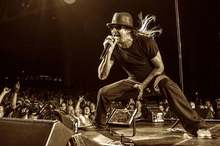
Posters (224)
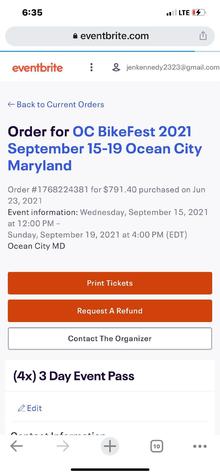
Past concerts
Rock The Country - Rome, GA
Boyd County Fairgrounds
Rock The Country - Ashland, KY
View all past concerts
Kid Rock tour dates and tickets 2024-2025 near you
Want to see Kid Rock in concert? Find information on all of Kid Rock’s upcoming concerts, tour dates and ticket information for 2024-2025.
Kid Rock is not due to play near your location currently - but they are scheduled to play 4 concerts across 1 country in 2024-2025. View all concerts.
Next 3 concerts:
- Ocala, FL, US
- Mobile, AL, US
- Poplar Bluff, MO, US
Next concert:
Popularity ranking:
- Janet Jackson (637)
- Kid Rock (638)
- Jaden (639)
Concerts played in 2024:
Touring history
Most played:
- Detroit (58)
- Los Angeles (LA) (23)
- Nashville (22)
- Dallas - Fort Worth (20)
- Chicago (18)
Appears most with:
- Foreigner (55)
- Uncle Kracker (44)
- Lynyrd Skynyrd (43)
- Jamey Johnson (36)
- Buckcherry (35)
Distance travelled:
Similar artists
- Most popular charts
- Campaigns for promoters
- API information
- Brand guidelines
- Community guidelines
- Terms of use
- Privacy policy
- Cookies settings
- Cookies policy
Get your tour dates seen everywhere.
- But we really hope you love us.
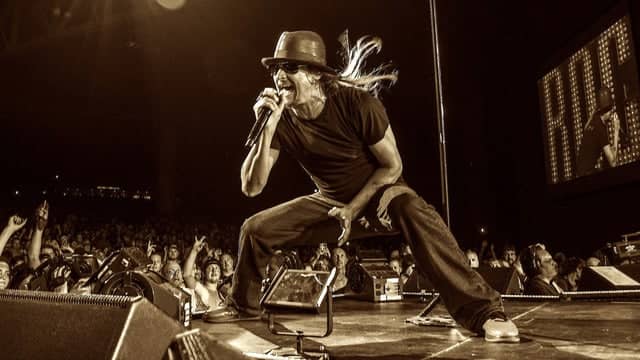
All Upcoming Events
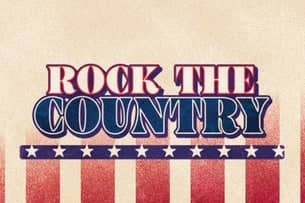
Majestic Oaks Ocala | Reddick, FL
Rock the country - ocala, fl, the grounds | mobile, al, rock the country - mobile, al, brick's offroad park | poplar bluff, mo, rock the country - poplar bluff, mo, anderson sport and entertainment center grounds | anderson, sc, rock the country - anderson, sc, latest setlist, kid rock on april 20, 2024.
Boyd County Fairgrounds, Ashland, Kentucky
Kid Rock is Putting on the Greatest Show On Earth
Kid Rock won't be running for the Senate, but we're looking forward to his new album 'Sweet Southern Sugar' and the Greatest Show On Earth Tour!
- Manage Account
Kid Rock Splits With Longtime Manager
Just as he's reached the top of the album charts for the first time, Kid Rock has made a major change at the top of his business operations. Rock's manager, Detroit-based Ed "Punch" Andrews, who also…
By Gary Graff
- Share on Facebook
- Share to Flipboard
- Share on Pinterest
- + additional share options added
- Share on Reddit
- Share on LinkedIn
- Share on Whats App
- Send an Email
- Print this article
- Post a Comment
- Share on Tumblr
Just as he’s reached the top of the album charts for the first time, Kid Rock has made a major change at the top of his business operations. Rock’s manager, Detroit-based Ed “Punch” Andrews, who also handles Bob Seger, has resigned after seven years of working with the Michigan rocker. Sources tell Billboard.com that Andrews has decided to retire after shepherding Rock’s latest album, “Rock N Roll Jesus,” to release last week. “Rock N Roll Jesus” is Rock’s first No. 1 album on The Billboard 200, selling just over 170,000 copies, according to Nielsen SoundScan. Rock has reportedly replaced Andrews with Nashville-based Vector Management, which handles Bon Jovi, Lynyrd Skynyrd and others. Neither Rock, who was performing in Nashville, nor Andrews could be reached for comment. It’s unknown whether Andrews will continue working with Seger, whom he’s handled since the late ’60s. Rock is in the midst of a theater tour to promote “Rock N Roll” Jesus.” He also has TV appearances slated for “Ellen” on Oct. 25, ABC’s “Jimmy Kimmel Live! on Oct. 26, the American Music Awards on Nov. 22 and on Larry the Cable Guy’s VH1 Christmas special in December. “Amen,” the second single from “Rock N Roll Jesus,” will ship to radio later this month, according to Rock’s web site.
Cannes 2024: 'Emilia Pérez' Ensemble, Including Selena Gomez, Wins Best Actress at Gala Ceremony
See latest videos, charts and news
Get weekly rundowns straight to your inbox
Want to know what everyone in the music business is talking about?
Get in the know on.
Billboard is a part of Penske Media Corporation. © 2024 Billboard Media, LLC. All Rights Reserved.
optional screen reader
Charts expand charts menu.
- Billboard Hot 100™
- Billboard 200™
- Hits Of The World™
- TikTok Billboard Top 50
- Song Breaker
- Year-End Charts
- Decade-End Charts
Music Expand music menu
- R&B/Hip-Hop
Videos Expand videos menu
Culture expand culture menu, media expand media menu, business expand business menu.
- Business News
- Record Labels
- View All Pro
Pro Tools Expand pro-tools menu
- Songwriters & Producers
- Artist Index
- Royalty Calculator
- Market Watch
- Industry Events Calendar
Billboard Español Expand billboard-espanol menu
- Cultura y Entretenimiento
Get Up Anthems by Tres Expand get-up-anthems-by-tres menu
Honda music expand honda-music menu.
- Music Artist
IMDbPro Starmeter See rank

- Contact info
- 3 wins & 21 nominations

- Soundtrack ("Let's Ride")

- Soundtrack ("Cowboy", "3 Sheets to the Wind (What's My Name)")

- Kid Rock (voice)

- Narrator (voice)

Personal details
- Apple Music
- Robert 'Kid Rock' Richie
- 6′ (1.83 m)
- January 17 , 1971
- Romeo, Michigan, USA
- Pamela Anderson August 3, 2006 - February 1, 2007 (divorced)
- Jill Ritchie (Sibling)
- Other works Questioned by Jay Leno on a segment called "Jay Walking" for The Tonight Show with Jay Leno (1992) before he became famous
- 1 Portrayal
- 10 Interviews
- 12 Articles
- 5 Pictorials
- 1 Magazine Cover Photo
Did you know
- Trivia Is good friends with rapper Eminem . Both battle-rapped against each other while coming up in Detroit.
- Quotes If it looks good, you'll see it. If it sounds good, you'll hear it. If its marketed right, you'll buy it. But...If its real...you'll feel it.
- Trademarks Goatee and long hair
- Bob or Bobby
- How old is Kid Rock?
- When was Kid Rock born?
- Where was Kid Rock born?
Related news
Contribute to this page.
- Learn more about contributing
More to explore

Add demo reel with IMDbPro

How much have you seen?


Recently viewed
- Bon Jovi and ME
- Win Upheaval Fest Tix
- Album Release Calendar
- Festival Guide
- Heavy History

Kid Rock Announces ‘No Snowflakes’ 2023 Tour
Kid Rock has booked a slate of shows dubbed the "No Snowflakes Summer Concert" series across some major U.S. cities this summer. A different special guest will support the singer on each of the tour dates.
"Snowflake" is derogatory slang implying a person is easily offended, overly emotional or has an inflated sense of entitlement. Kid Rock — the rock, country and hip-hop artist with ties to former President Donald Trump — goaded "snowflakes" in the 2021 song " Don't Tell Me How to Live ." ( "You snowflakes here's a news flash / Ain't nobody gonna tell me how to live," he sings .) The term "no snowflakes" also indicates that the tour takes place in the warmer weather of summer.
See the dates near the bottom of this post.
Four concerts have been revealed for the 2023 No Snowflakes tour so far, although it is presumed that more shows will be announced at a later date.
READ MORE: How 'Borat' Led to the End of Kid Rock + Pamela Anderson's Marriage
Kid Rock will play Moody Center in Austin, Texas, on June 23 with Chris Janson. He plays Dickies Arena in Fort Worth, Texas, on June 24 with Marcus King. Then Bridgestone Arena in Nashville, Tennessee, July 1 with Travis Tritt. Plus, a July 14 hometown show at Detroit's Little Caesars Arena with Grand Funk Railroad. (Kid Rock played with Grand Funk last year.)
General on-sale starts on Friday (March 10) at 10AM local time, with a special artist pre-sale beginning on Tuesday (March 7). Get Kid Rock tickets here.
Bad Reputation , Kid Rock's 12th studio album, emerged in 2022. His "Bad Reputation Tour" surrounded it.
Kid Rock "No Snowflakes" 2023 Dates
June 23 – Austin, Texas @ Moody Ctr # June 24 – Ft. Worth, Texas @ Dickies Arena ^ July 1 – Nashville, Tenn. @ Bridgestone Arena % July 14 – Detroit, Mich. @ Little Caesars Arena $
# With Chris Janson ^ With Marcus King % With Travis Tritt $ With Grand Funk Railroad
Other 2023 Kid Rock Dates
April 18 – Nashville, Tenn. @ Ryman Auditorium June 2 – Lincoln, Calif. @ Thunder Valley Casino June 18 – Wildwood, N.J. @ Barefoot Fest
Your Guide to Rock + Metal Bands Touring in 2023
More from loudwire.
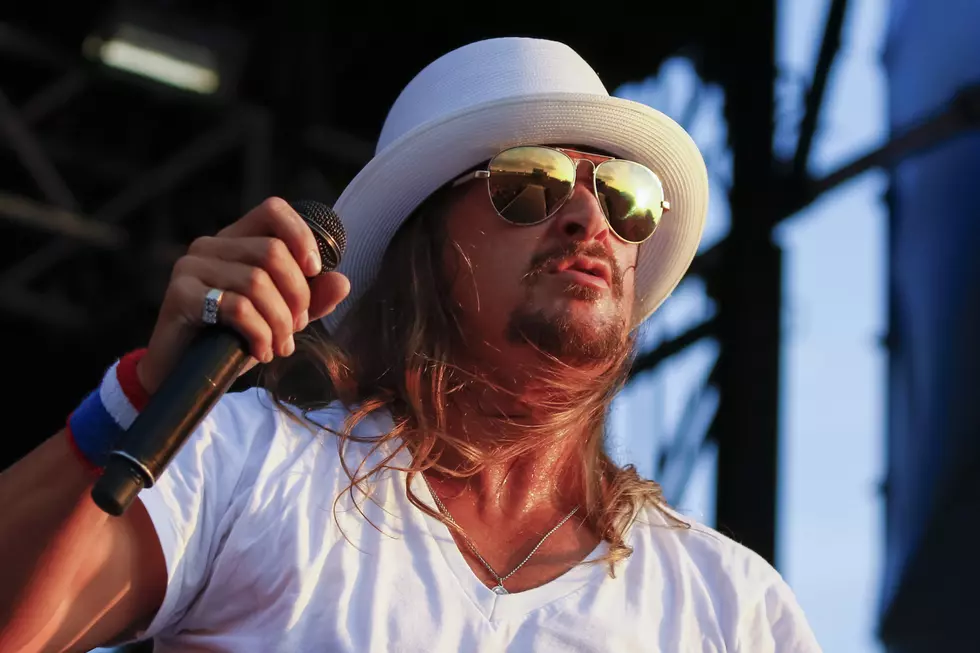
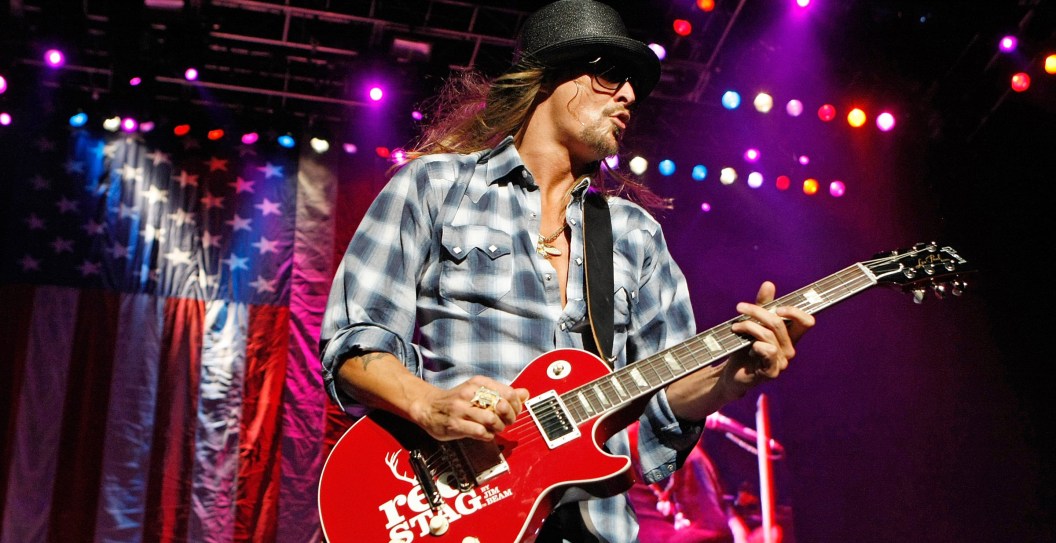
Kid Rock Still Heartbroken After Death of Frequent Collaborator Years Later: "Devastating"
It may have been years later, but Kid Rock is still heartbroken over the death of one of his frequent collaborators — Joe C. The musician recently reflected on the rapper's death.
Speaking on This Past Weekend w/ Theo Von podcast , Kid Rock talked about the first time he met Joe C. Joe C became known for appearing at Rock's concerts. He struck an impression with audiences thanks to his small stature as well as his language and bold attitude. Joe C, real name Joseph Michael Calleja, died in his sleep in 2000 from complications related to celiac disease.
"Fortunately, he passed away at home," Kid Rock said. "It was already devastating enough, but if that would have happened on the road...."
Kid Rock first met Joe C. during one of Rock's shows. Their first encounter resulted from a comedy of errors. Kid Rock explained that he instantly made an impression. "He came to one of my early shows. It was probably 600 to 700 kids there. He's standing on a table. You could tell he was a little dude, but he didn't have the features. He would always yell, "I'm not a f—king midget. I'm just a little mother—ker,'" Rock said.
Kid Rock and Joe C Become Fast Friends
Rock though Joe C. was a little kid at first. He asked to see him after the show because he was concerned. Rock said, "He's smoking a joint on the table, singing along to all my old dirty songs. I'm like does anybody see that f—king kid out there. Someone brought their six or seven or eight-year-old kid. Somebody go get that kid. I have questions. I get him back there."
Rock continued, "He goes that's f—king awesome man. And he lights up another joint and I'm like WTF. He goes, 'I'm 18, I'm f—king Joe C mother—ker.' Do you want a job? He goes I'm not really that good of a rapper. I'm like well I can teach you. I can teach you. I can show you young sensei."
Kid Rock and Joe C. struck up a friendship that lasted the rest of Joe's life. Kid Rock made him part of his group and became a mentor for the musician. He also looked out for him while he was touring, making sure that Joe managed his symptoms. When Joe forgot his medicine one time, Kid Rock made Joe eat two bottles of Tums on the suggestion of Joe's father.
"From that day on, he was down, he was in the crew. I miss him every day man," Kid Rock said. "He had celiac disease, He was diagnosed as a kid. So god bless him, he had to take like 72 pills a day. He had kind of like this dialysis machine that he hooked up at night. So it was tough to bring him on the road, but I'm glad he went to a lot of spots with us, to be able to see. This was when we were f—king nutmegs. We were just following the handbook of rock 'n roll to the tee and hopefully inventing some new chapters in it. He got to see so many cool places and got to meet so many of his heroes.
You Might Also Like

WATCH: Kid Rock Teams Up With Travis Tritt For “All Summer Long” At The Kentucky Derby
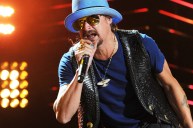
Kid Rock Blasts Ticketmaster For Price Gouging Customers: "They Have a Monopoly"
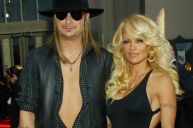
Entertainment
The loves of kid rock's life, from pamela anderson to audrey berry.
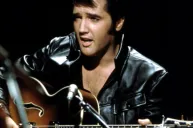
Future Husband And Wife Both Attend Elvis Presley Concert, Feet Apart Before They Met

- Movie Directors
- Digital Influencers
- Music Agents
- Talent Agents
- Sports Agents
- Music Managers
- Talent Managers
- Edit Your Profile
- Account Info
- Submit Info Request

Kid Rock contact info
Kid rock management team, kid rock agent.
Nashville, TN United States
Kid Rock Manager
Kid rock publicist, kid rock tour dates, about kid rock.

Popularly known as Bobby Shazam and Kid Rock, which are his stage names, Robert James Ritchie is an American rapper, songwriter, record producer, and musician who is self-taught and started his career in music as a record producer and DJ. Kid’s debut album, ‘Grits Sandwiches for Breakfast’ was released on Jive Records in 1990. In a career span of 30 years, Kid Rock has worked in rock, hip hop, and country musical styles. He is a multi-instrumentalist, who oversaw nine of his own eleven studio albums. His breakthrough album, ‘Devil Without a Cause’, was released in 1998, and 14 million of the album’s copies were sold. The songs ‘Devil Without a Cause’ and the other release ‘Cocky’ were critically appreciated for blending the styles of country, heavy metal, hip hop, and rock. Rock released his album ‘Born Free’, in 2010. Some of his notable albums are ‘Cocky’, ‘Devil Without a Cause’, ‘The Polyfuze Method’, and ‘Early Mornin’ Stoned Pimp’.
Testimonials
We promote concerts on a monthly basis, and use Bookingagentinfo.com to have quick access to the booking agents for different artists. Bookingagentinfo.com has saved us time and money. — Martin Tinnell, Las Vegas Concert Promoter
I signed up for Booking Agent Info because I was having a hard time finding management and publicist info for artists that I wanted to interview for the publication that I write for. At first I was really skeptical about things, I didn't know if the site was trustworthy. But I'm really glad I signed up! Rather than taking the time to dig through the internet, I can just go to Booking Agent Info and its all there for me. The site is very straightforward and any information I need is easy to search for. — Chelsea Smith, Music Editor, SWGRUS
With Bookingagentinfo.com I have been able to reach the managers of various celebrities and influencers that I wasn't able to reach before for product endorsements and placements. It has also saved me time by providing me with the right person to talk to. — Shane Fairbrother, CEO, Medtainer
I've been able to get in contact with representation for celebrities and am finding it much easier to get interviews for our podcast thanks to Booking Agent Info. — Matthew Ardill, Comedy Album Book Club Podcast
Kid Rock FAQ
How to book kid rock, who do i contact for media inquiries, who is on kid rock management team, what is kid rock's booking price, booking agent info provides you...
..with the contact information for Kid Rock agent, manager, and publicist.
Our site is meant to assist you in finding how much does it cost to book Kid Rock for an event, and how to book Kid Rock. Our database can be used to assist you in getting Kid Rock endorsements , interviewing Kid Rock, or to hire Kid Rock for an event.
Similar Celebrities
Vulgaires machins contact information.
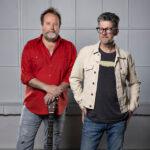
Skydiggers Contact Information
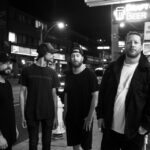
Sights & Sounds Contact Information
Serlin greaves contact information, darksiderz contact information.
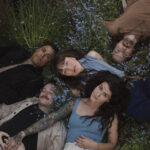
Miina Contact Information
Michel pagliaro contact information, matthew good contact information.
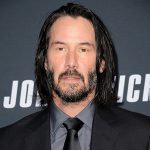
Keanu Reeves Contact Information

Jason Momoa Contact Information

Tyla Contact Information
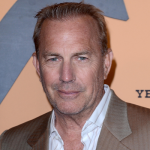
Kevin Costner Contact Information

Taylor Swift Contact Information

Joost Klein Contact Information

Johnny Depp Contact Information
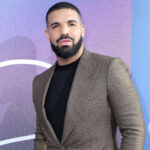
Drake Contact Information
You are about to add to a special kind of list called a dynamic list. Unlike regular lists where you add or remove items yourself, a dynamic list does this automatically based on rules you set up. Once you decide on these rules, the list keeps updating on its own, adding or taking away according to those rules and the data available in our database. You won't be able to change the list by hand, but it will always stay up-to-date by itself. The rules you're setting for this list are:
Report Error
Kid rock contact information.
This website uses cookies to improve service and provide tailored ads. By using this site, you agree to this use. See our Privacy Policy . Accept
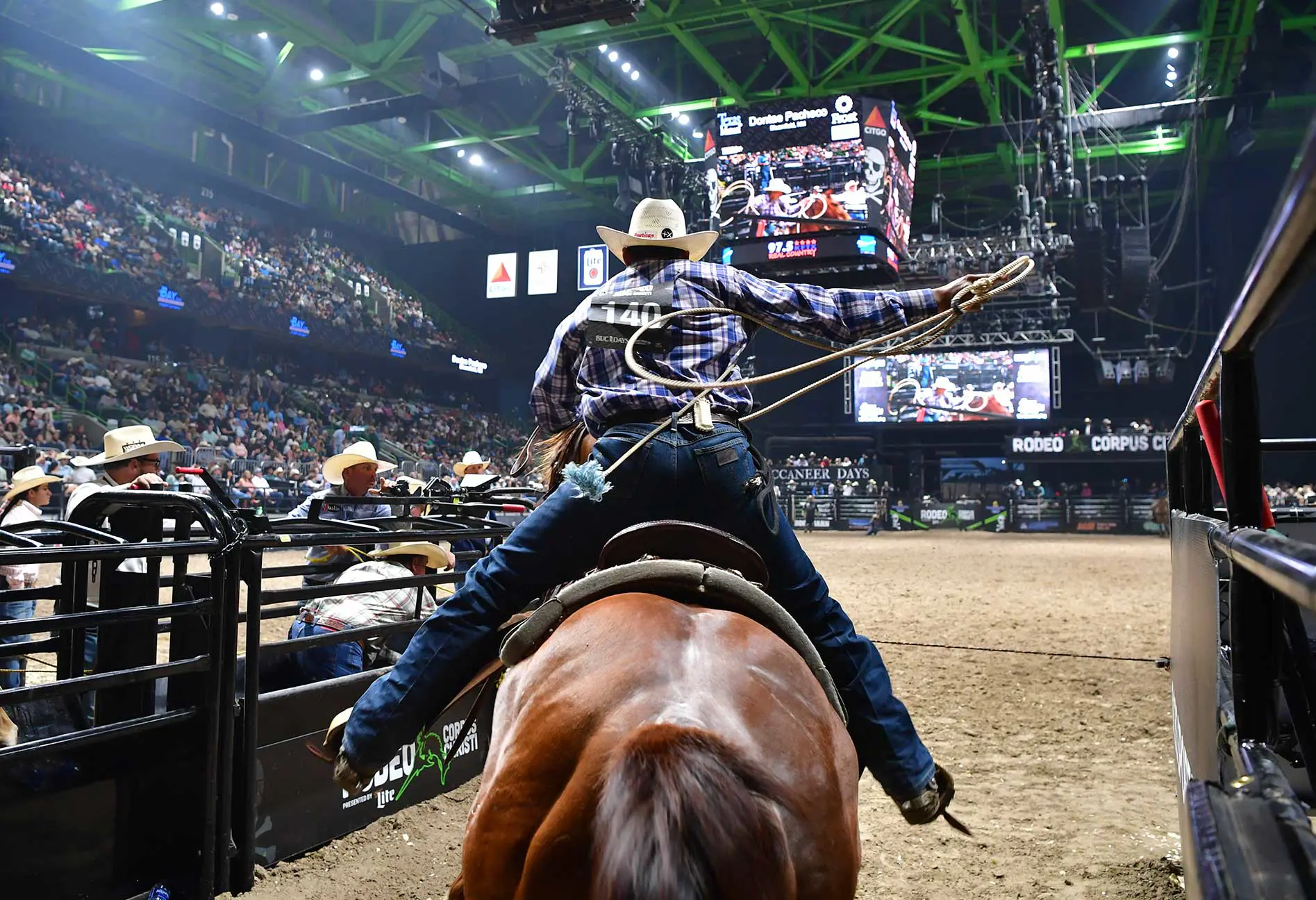
Let's Rock And Ride
Friday, may 17 • at&t stadium • arlington, tx, meet the 2024 kid rock's rock n rodeo champions.
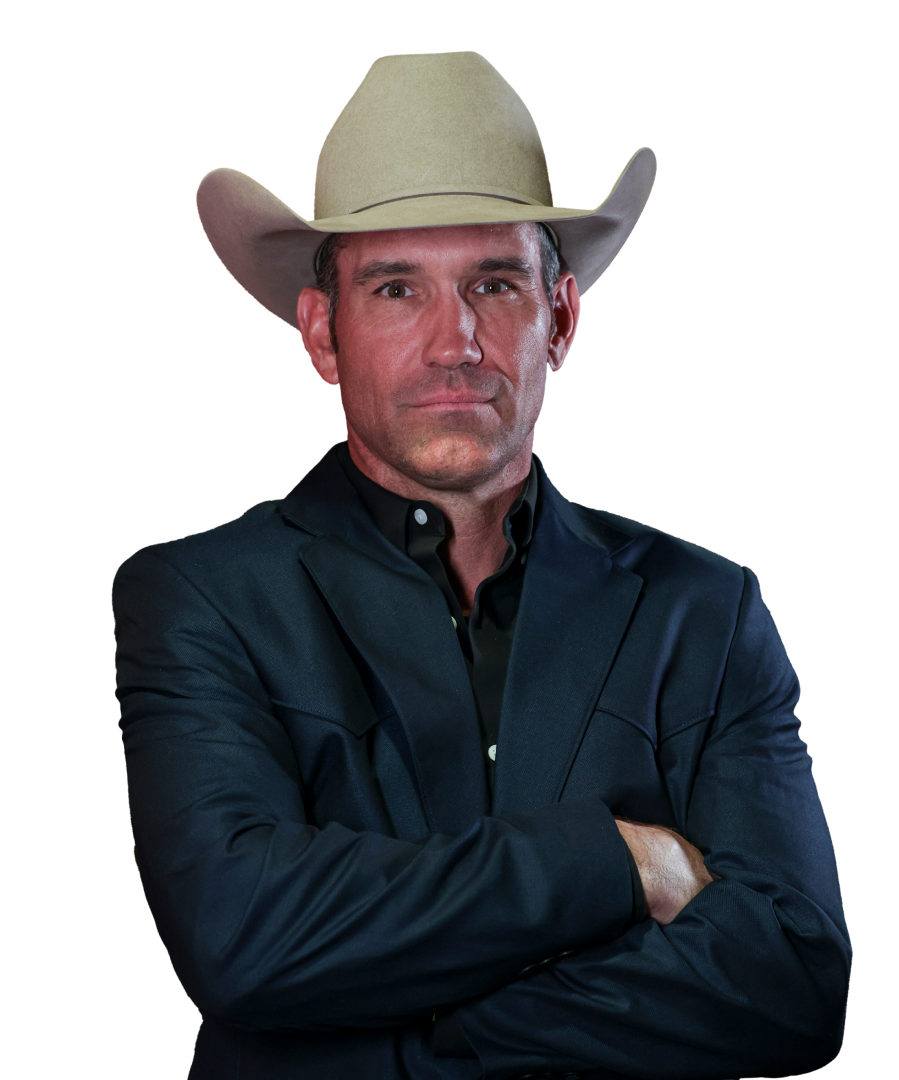
Head Coach, Free Riders
Hailed by some as the greatest bareback rider in history, Mote in 2012 became the first to surpass $2 million in earnings. He qualified for the WNFR 15 consecutive years beginning in 2001. In 2002, Mote won his first of four PRCA bareback riding world championships, also riding supreme in 2007, 2009 and 2010. In his mid-20s Mote took up team roping, and in 2012 finished runner-up to Trevor Brazile in the All-Around Championship.
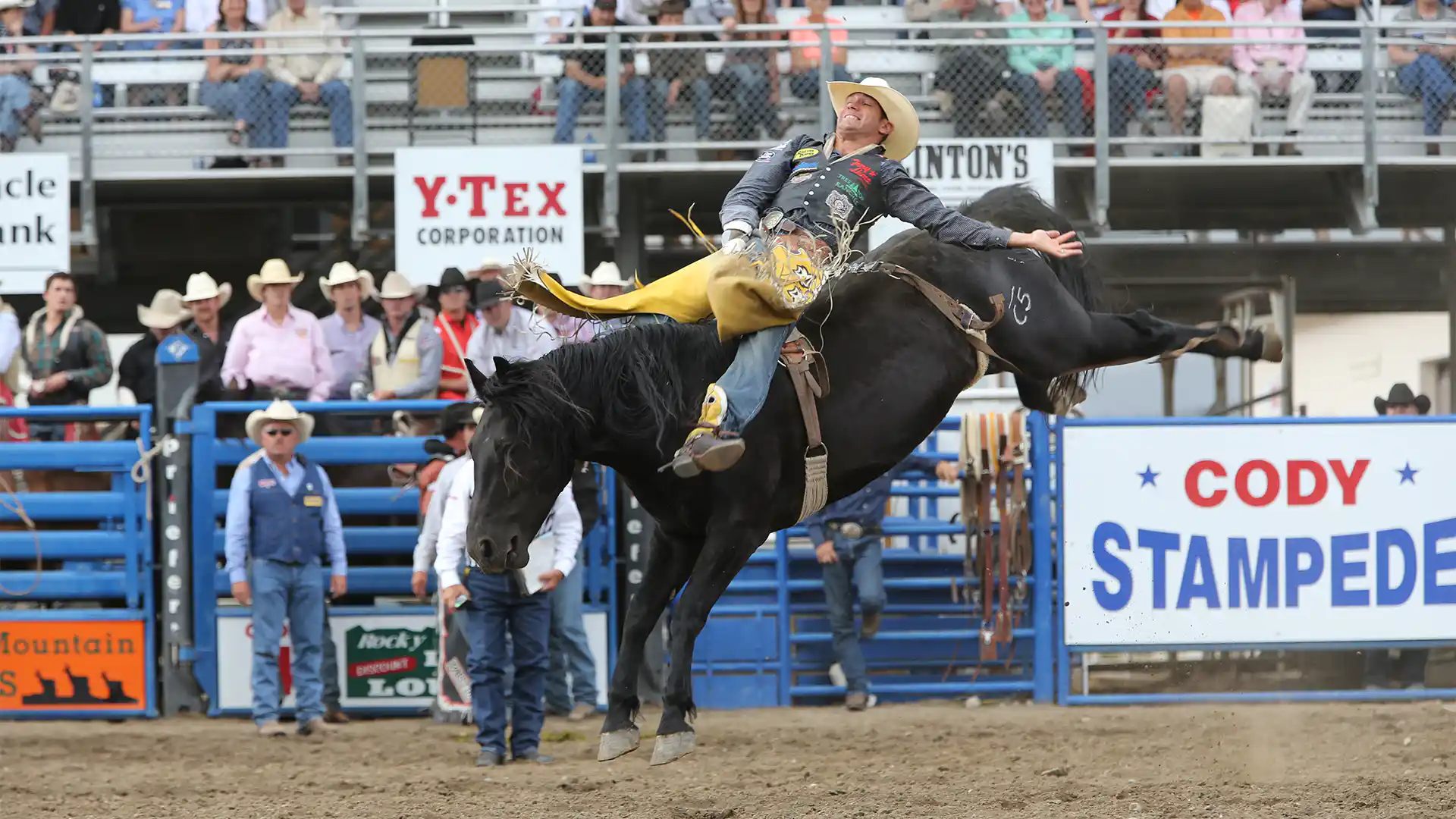
Latest News
Free Free Riders win first-ever Kid Rock’s Rock N Rodeo at AT&T Stadium in Arlington, Texas [Read More]
UNLEASH THE BEAT WITH KID ROCK
Experience the electrifying fusion of rock, country and hip-hop with Kid Rock performing live in concert at this revolutionary new rodeo event during the PBR World Finals!
Known for mega-hits like 'Bawitdaba', 'All Summer Long', and 'Cowboy,' Kid Rock transforms every stage into a powerhouse of energy. Dive into the world of this multi-platinum phenomenon and get ready to rock with one of music's most dynamic and enduring superstars!
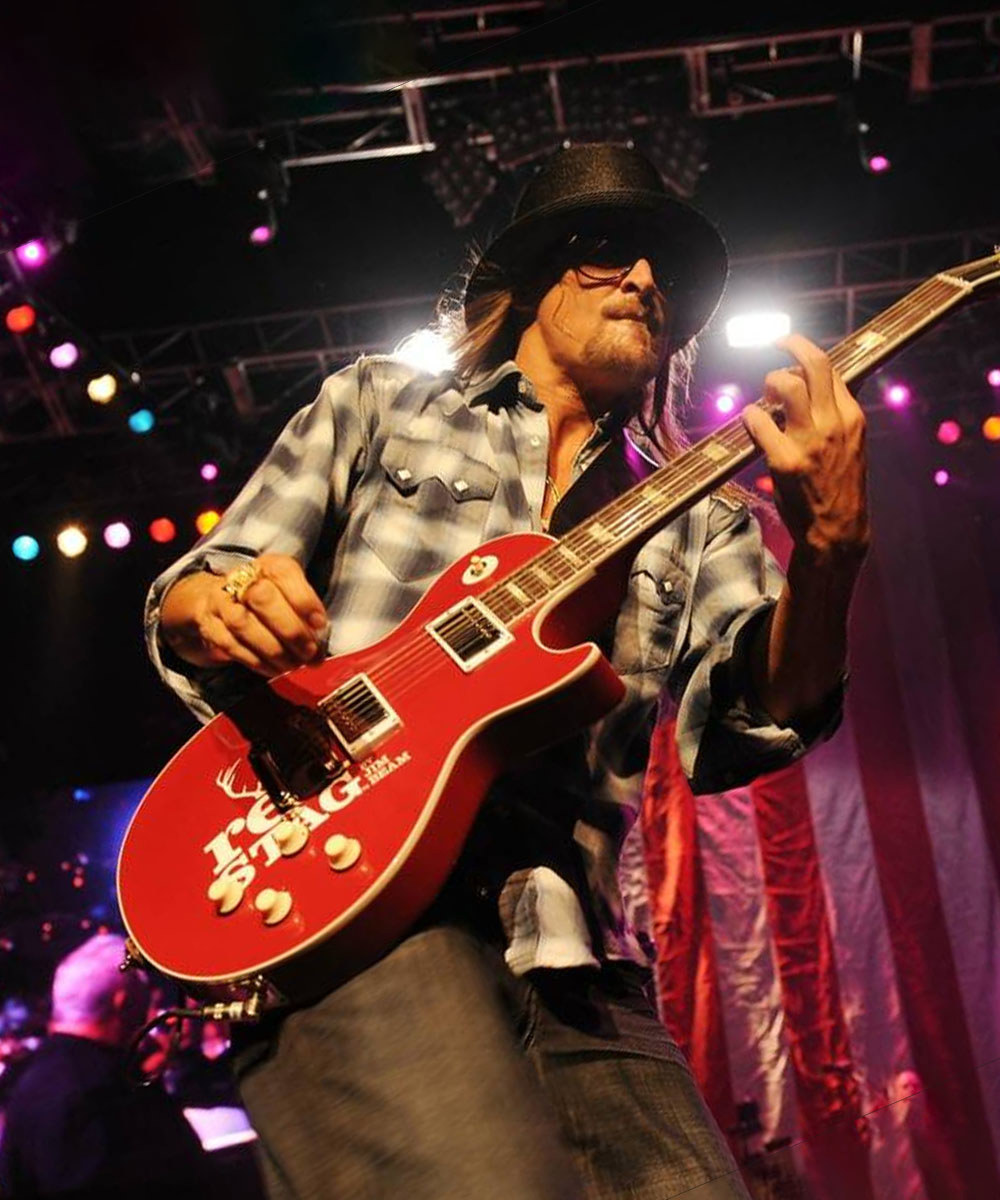
RODEO REIMAGINED
It’s tomorrow’s rodeo today – the world’s best athletes on six teams, each led by a legendary rodeo head coach, faced off head-to-head in simultaneous bracket-style competition at AT&T Stadium in Arlington, Texas.
The all-star rodeo team competition and upbeat production, included a live performance by Kid Rock, and was patterned after the successful formula PBR brought to bull riding through the Teams league launched in 2022.
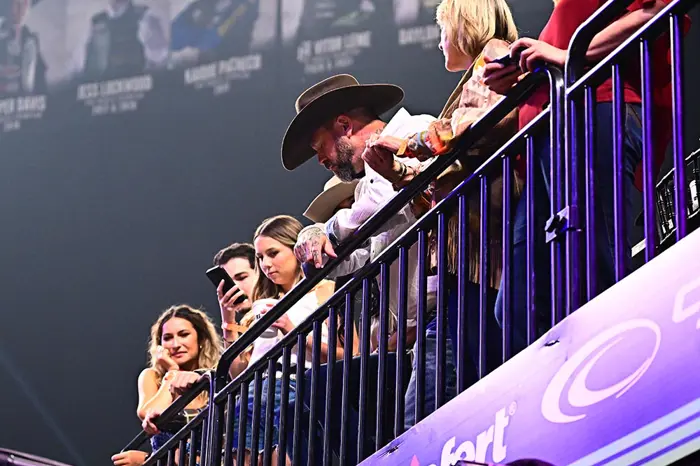
Get Us On The Horn
Customer services, additional information & general inquiries

@kidrockrnr
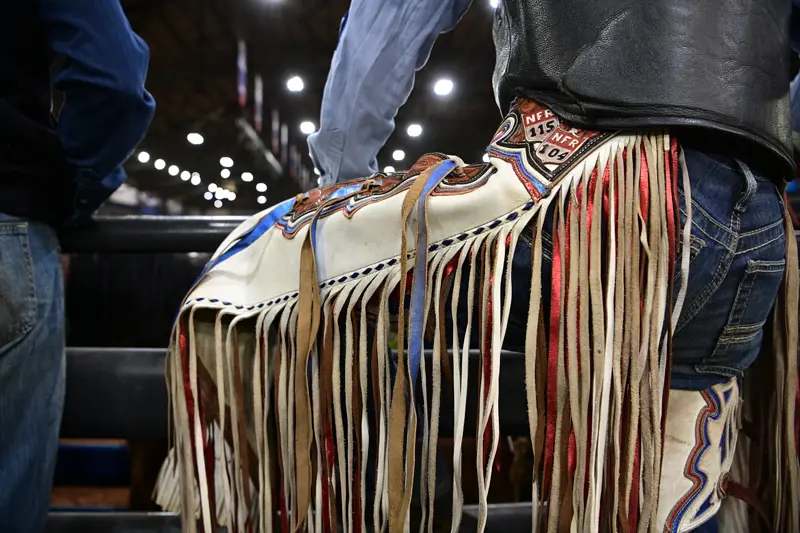
Rock The Country Tour
Rock the country goes live on-stage in….
Learn More Buy Tickets
Your independent guide to the best concerts in 2024! This website is operated by a ticket broker. Ticket prices are set by third-party sellers and may be above or below face value. We are not affiliated with nor endorsed by Rock the Country.
Kid Rock, Jason Aldean, and More!
Get ready for a toe-tapping, head-banging, unforgettable experience as the 'Rock the Country' tour takes the stage! Kid Rock and Jason Aldean, alongside an incredible lineup of country and rock stars, are set to deliver a musical fusion that transcends genres. Imagine the raw power of rock colliding with the heartfelt melodies of country, creating a night of pure musical magic. With each headliner bringing their unique flair, this tour promises to be a can't-miss celebration of the best that both worlds have to offer. Grab your tickets and get ready to rock and roll with the 'Rock the Country' tour!
Rock The Country Ocala: Kid Rock, Jason Aldean & Lynyrd Skynyrd - 2 Day Pass Majestic Oaks Ocala Reddick, Florida
Rock the country ocala - friday pass (time: tbd) majestic oaks ocala reddick, florida, rock the country ocala - saturday pass (time: tbd) majestic oaks ocala reddick, florida, rock the country mobile: kid rock & jason aldean - 2 day pass the grounds mobile, alabama, rock the country mobile - friday pass (time: tbd) the grounds mobile, alabama, rock the country mobile - saturday pass (time: tbd) the grounds mobile, alabama, rock the country poplar bluff: kid rock, jason aldean & hank williams jr. - 2 day pass brick's off road park poplar bluff, missouri, rock the country poplar bluff - friday pass (time: tbd) brick's off road park poplar bluff, missouri, rock the country anderson: kid rock, jason aldean & miranda lambert - 2 day pass anderson sport and entertainment center anderson, south carolina, powered by bigstub® - trusted everywhere, your independent guide to the best concerts in 2024 this website is operated by a ticket broker. tickets are listed by third-party sellers and may be above face value..
PBR World Finals: Kid Rock’s Rock N Rodeo
Latest tweets, latest posts, follow our team.
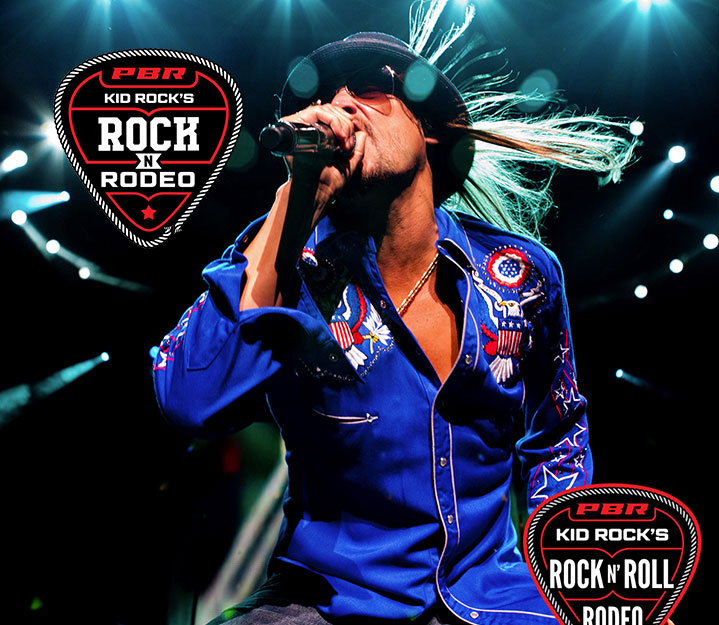
PBR AND KID ROCK ANNOUNCE KID ROCK’S ROCK N RODEO – TRANSFORMING THE SPORT OF RODEO. The m usic-infused team rodeo is set to debut at AT&T Stadium on May 17, 2024 leading into PBR World Finals Championship.
PBR, the world’s leading Western sports organization, is tying its premier bull riding event – the PBR World Finals: Unleash The Beast – to the unique rodeo event with entertainment curated by Kid Rock, who has sold more than 35 million albums and is leaning into the growing Western sports and lifestyle market. The partnership aims to transform rodeo into a competitive team endeavor fans can better relate to within an amped-up rock and roll atmosphere – bringing more energy, fun and accessibility to rodeo events!
The reimagined rodeo will feature a Team format with six teams competing in bracket-style competition featuring Kid Rock live in concert, playing all his hits and more. The all-star rodeo team competition and upbeat production will be patterned after the successful formula PBR brought to bull riding through the Camping World Team Series launched in 2022. Six teams, each led by a head coach who will make crucial game decisions, will go head-to-head in barrel racing, bareback riding, saddle bronc riding, tie-down roping, team roping, steer wrestling, and breakaway roping, a fast-growing rodeo discipline.
The 2024 PBR World Finals: Unleash The Beast is coming to AT&T Stadium May 18 & 19, 2024 . This year’s final is going be bigger, badder, and bolder than ever with more bucking. Everything is on the line and it all comes down to this!
3-Day ticket packages are on sale now at SeatGeek.com . Single day tickets are on sale now at SeatGeek.com .


Kid Rock & Jelly Roll Make Epic Entrance Riding In General Lee Cybertruck While Performing “Cowboy” At Kid Rock’s Rock N Rodeo

Kid Rock Performed ‘Cowboy’ in the Bed of a ‘General Lee’ Cybertruck
By Jon Blistein
Jon Blistein
No longer content with just owning the original General Lee car from the Dukes of Hazzard , Kid Rock mocked up a Tesla Cybertruck to look like the famous orange 1969 Dodge Charger.
The musician used it to make a grand entrance at his Rock N Rodeo show outside Dallas on Saturday night, singing “Cowboy” from the bed of the Elon Musk pickup while Dukes of Hazzard star John Schneider drove the car. It was a spectacle very much in-line with Kid Rock and Schneider’s whole stick-it-to-the-libs vibe, down to the custom Cybertruck (though somewhat notably — and perhaps thankfully — there was no giant Confederate flag painted on the roof).
The Try Guys Go From Trio to Duo
Kelly clarkson and ex-husband brandon blackstock settle lawsuit over millions in commissions, how kid rock went from america's favorite hard-partying rock star to a maga mouthpiece, see jelly roll debut new song 'i am not ok' on 'the voice' season finale.
In an extensive new interview with Rolling Stone , Kid Rock spoke (over the course of many, many drinks) about his transformation into a reliable right-wing culture warrior, Fox News talking head, and Donald Trump supporter. Despite his commitment to trolling, though, the musician — born Bob Ritchie — occasionally evinced some self-awareness, especially when it came to recognizing his place in an increasingly polarized country.
“I’m part of the problem,” he said. “I’m one of the polarizing people, no question. Sometimes I bitch about other people, then I look in the mirror and I’m like, ‘Oh, yeah, why don’t you shut the fuck up too?’” He then added: “It’s a rich-guy issue. No fucks left. I’m not going to get it right every time, but I know my heart’s right. I want the best for this country.”
Rauw Alejandro Is Free and 'Touching the Sky' on Bright New Single
- Espectaclar
- By Tomás Mier
Retaliation, Fees, and a 'Pimp' and 'Hammer': 6 Takeaways From DOJ's Live Nation Lawsuit
- By Jon Blistein and Ethan Millman
- Crimes and Courts
- By Nancy Dillon
Hear the First New Sublime Song in 28 Years — Featuring Both Bradley Nowell and His Son
- By Brian Hiatt
Sean Kingston's Mother Arrested During Raid on South Florida Mansion
- crimes and court
- By Daniel Kreps
Most Popular
Kevin costner can't hold back tears as his western epic 'horizon' earns 7-minute cannes standing ovation, promises '3 more' installments, bill maher says he doesn't understand harrison butker's graduation speech criticism, heather rae el moussa says having a baby made her marriage to tarek ‘even harder’ in candid new interview, taylor declines a-rod, lore's 'loser pays' offer in t-wolves arbitration, you might also like, ‘blue sun palace’ review: a moody debut shines light on sisterhood among chinese immigrants working in a massage parlor, bella hadid favors white-hot dressing in backless jacquemus look at cannes film festival 2024, the best yoga mats for any practice, according to instructors, josh brolin on directing difficult actors: ‘if you’re just an irritated actor because you’re so creative or sensitive, i just don’t buy it’, ncaa, power five ok $2.7 billion antitrust settlement.
Rolling Stone is a part of Penske Media Corporation. © 2024 Rolling Stone, LLC. All rights reserved.
Verify it's you
Please log in.
- Search Please fill out this field.
- Newsletters
- Sweepstakes
Kid Rock allegedly waves gun around during interview with Rolling Stone reporter
The musician had asked reporter David Peisner to "write the most horrific article about me."
Jessica is a staff writer at Entertainment Weekly, where she covers TV, movies, and pop culture. Her work has appeared in Bustle, NYLON, Cosmopolitan, InStyle, and more. She lives in California with her dog.
Kid Rock allegedly pulled out a handgun and waved it around mid-interview with Rolling Stone.
Reporter David Peisner recounted the events of the interview with the musician, real name Bob Ritchie, that spanned over two hours at his home just outside Nashville, writing that it began cordially enough before Rock got "drunk and belligerent" and sent the evening "off the rails" as the two argued over Donald Trump and immigration.
Rock called immigrants "murderers" and "rapists," incendiary talking points touted by Trump during his presidency, before he allegedly reached behind the seat of his leather chair to pull "out a black handgun" and waved it around "to make some sort of point," Peisner wrote in the profile of the Rock published Sunday.
“And I got a f---ing goddamn gun right here if I need it!” Rock allegedly shouted. “I got them everywhere!”
Reps for Rock didn't immediately respond to Entertainment Weekly 's request for comment.
Conducted after his Fox News interview with Laura Ingraham before spilling over to his home — which was described as a replica of the White House in the profile — the erratic interview covered Rock's alt-right political leanings and support of Trump, whom he called his "bestie." “You think I like Trump because he’s a nice guy?” Rock said. “I’m not electing the deacon of a church. That motherf---er likes to win. He likes to cheat in his f---ing golf game. I want that guy on my team. I want the guy who goes, ‘I’m going to fight with you.’”
Stephen J. Cohen/Getty
Rock also acknowledged he was aware that he was "part of the problem" when it came to sowing division, echoing accusations that the 2020 election was "stolen" by Joe Biden despite no evidence of voter fraud. “It’s a rich-guy issue,” Rock said. “No f---s left. I’m not going to get it right every time, but I know my heart’s right. I want the best for this country.”
As the exhaustive interview began to wind down, Peisner alleged Rock blocked his attempts to leave, writing that the musician insisted on playing YouTube video after YouTube video. By the time Peisner made it out of the house, Rock motioned him over and asked, “Would you do me a favor? Just write the most horrific article about me. Do it. It helps me.”
Related Articles

IMAGES
VIDEO
COMMENTS
Manager for Kid Rock, Behind the Scenes Making People Great - Our featured guest today is Steve Hutton.Steve is a music manager that is best known for managing Kid Rock from unknown to mega-star. Steve over his 25-year career has managed tons of acts that you've heard of-Big and Rich, Better Than Ezra--through his management company.One of his current acts is also an international success ...
Mike Amato. Mike Amato is an American music tour manager, best known for working with Slipknot, Arcade Fire, Green Day, KISS, Linkin Park, Mötley Crüe, System of a Down, Cinderella, AC/DC, Skid Row, Marilyn Manson, Soundgarden, Kid Rock, Daughtry, Daniel Powter, and Godsmack, among others. He also was the interim manager for Type O Negative ...
Tour. May 10/11. Rock The Country. Kingston Downs - Rome, GA. Buy Tickets. May 17. Kid Rock's Rock N' Roll Rodeo. AT&T Stadium - Arlington, TX. Buy Tickets. June 7/8. Rock The Country. Majestic Oaks - Ocala, FL. Buy Tickets. June 21/22. Rock The Country. The Grounds - Mobile, AL. Buy Tickets. June 28/29.
Jive booked Kid Rock on that year's Straight from the Underground package tour with Too Short and others — a shot at a national audience. ... (manager, the Ritz, State Theatre ... Kid Rock was ...
· Experience: KID ROCK · Location: Nashville · 500+ connections on LinkedIn. View Tim Bolin's profile on LinkedIn, a professional community of 1 billion members. ... Tour Manager, Production ...
Kid Rock's Jive debut, ... "All Summer Long," worked as a monitor tech on tour with him in 2018, and was alarmed by what he saw. ... He's got people around — among others, his manager ...
Nashville local Production Manager, Clayton Hutson, will be on Kid Rock's second 2018 U.S. Tour Warren Katz , Neighbor Posted Wed, Jul 25, 2018 at 10:57 am CT
Mike "Cheez" Brown has been a band and tour manager for Korn, Kid Rock, Dirty Heads, Sublime and Rage Against the Machine with 39 years of professional experience. Cheez trusts PennGrade Motor Oil to get him from gig to gig.
Sat 19 Oct 2024 Atrium Health Amphitheater Macon, GA, US. Everclear. Sat 07 Sep 2024 Casino Rama Resort Rama, ON, Canada. Theory of a Deadman. Thu 12 Sep 2024 OC Bikefest Ocean City, MD, US. Uncle Kracker. Fri 21 Jun 2024 Rock The Country 2024 Mobile, AL, US. Vanilla Ice. Sat 21 Sep 2024 Star of the Desert Arena Primm, NV, US.
Rock The Country - Anderson, SC. Find concert tickets for Kid Rock upcoming 2024 shows. Explore Kid Rock tour schedules, latest setlist, videos, and more on livenation.com.
By Gary Graff. 10/17/2007. Just as he's reached the top of the album charts for the first time, Kid Rock has made a major change at the top of his business operations. Rock's manager, Detroit ...
Kid Rock. 6,487,858 likes · 49,245 talking about this. Cowboy, Baby.
Early life. Kid Rock was born Robert James Ritchie in Romeo, Michigan, on January 17, 1971, the son of Susan and William "Bill" Ritchie (1941-2024), who owned multiple car dealerships. He was raised in his father's large home on extensive property, which included an apple orchard and barnyard for their horses. He attended Romeo High School. His younger sister, Jill Ritchie, is an actress.
Kid Rock. Actor: Joe Dirt. Robert James Ritchie or Kid Rock is an American rapper, rock musician, singer and actor from Romeo, Michigan. He performed with Joe C and Uncle Kracker for his band. He is known for his appearances on The Simpsons, Joe Dirt and Osmosis Jones. He was previously married to Canadian actress Pamela Anderson.
Get Kid Rock tickets here. Bad Reputation, Kid Rock's 12th studio album, emerged in 2022. His "Bad Reputation Tour" surrounded it. Kid Rock "No Snowflakes" 2023 Dates. Live Nation. June 23 ...
Kid Rock first met Joe C. during one of Rock's shows. Their first encounter resulted from a comedy of errors. Kid Rock explained that he instantly made an impression. "He came to one of my early ...
Phone: +1 61. View Agent. Kid Rock is represented by agents Risha Ro***** and Joey Le*. Risha is based in United States. Kid Rock's agents used to be Bradlee Banbury at Creative Artists Agency (CAA), Yale Jesser at Creative Artists Agency (CAA), and Rick Roskin at Creative Artists Agency (CAA). Kid Rock has 2 agents on Booking Agent Info.
Rating: 5 out of 5 Best concert in 30 years! by Hillbillywife on 8/24/23. This was my first Kid Rock show. I drove approximately 6 1/2 hours to see the show. It was lit! Kid Rock did not disappoint.
Experience the electrifying fusion of rock, country and hip-hop with Kid Rock performing live in concert at this revolutionary new rodeo event during the PBR World Finals! Known for mega-hits like 'Bawitdaba', 'All Summer Long', and 'Cowboy,' Kid Rock transforms every stage into a powerhouse of energy. Dive into the world of this multi-platinum ...
Fri, Jun 21, 2024 12:00 PM. Get Tickets. Rock The Country Mobile - Saturday Pass (Time: TBD) The Grounds. Mobile, Alabama. Sat, Jun 22, 2024 12:00 PM. Get Tickets. Rock The Country Poplar Bluff: Kid Rock, Jason Aldean & Hank Williams Jr. - 2 Day Pass. Brick's Off Road Park.
The reimagined rodeo will feature a Team format with six teams competing in bracket-style competition featuring Kid Rock live in concert, playing all his hits and more. The all-star rodeo team competition and upbeat production will be patterned after the successful formula PBR brought to bull riding through the Camping World Team Series ...
Kid Rock was in Dallas this weekend for the first ever Kid Rock's Rock N Rodeo, a "music-infused team rodeo event" held in partnership with the PBR as they kicked off their world finals weekend ...
The first team to secure four discipline wins in the Shootout Round will clinch the event win. In total, Kid Rock's Rock N' Rodeo will pay out $1,000,000 in prize money to the athletes and coaches, with the winning team earning $500,000. The remaining $500,000 will be split among the other five team's athletes and coaches.
Kid Rock Performed 'Cowboy' in the Bed of a 'General Lee' Cybertruck. Fellow MAGA-head and Dukes of Hazzard star John Schneider was in the driver's seat, with Jelly Roll riding shotgun. By ...
Jessica Wang. Published on May 20, 2024 01:14PM EDT. Kid Rock allegedly pulled out a handgun and waved it around mid-interview with Rolling Stone. Reporter David Peisner recounted the events of ...